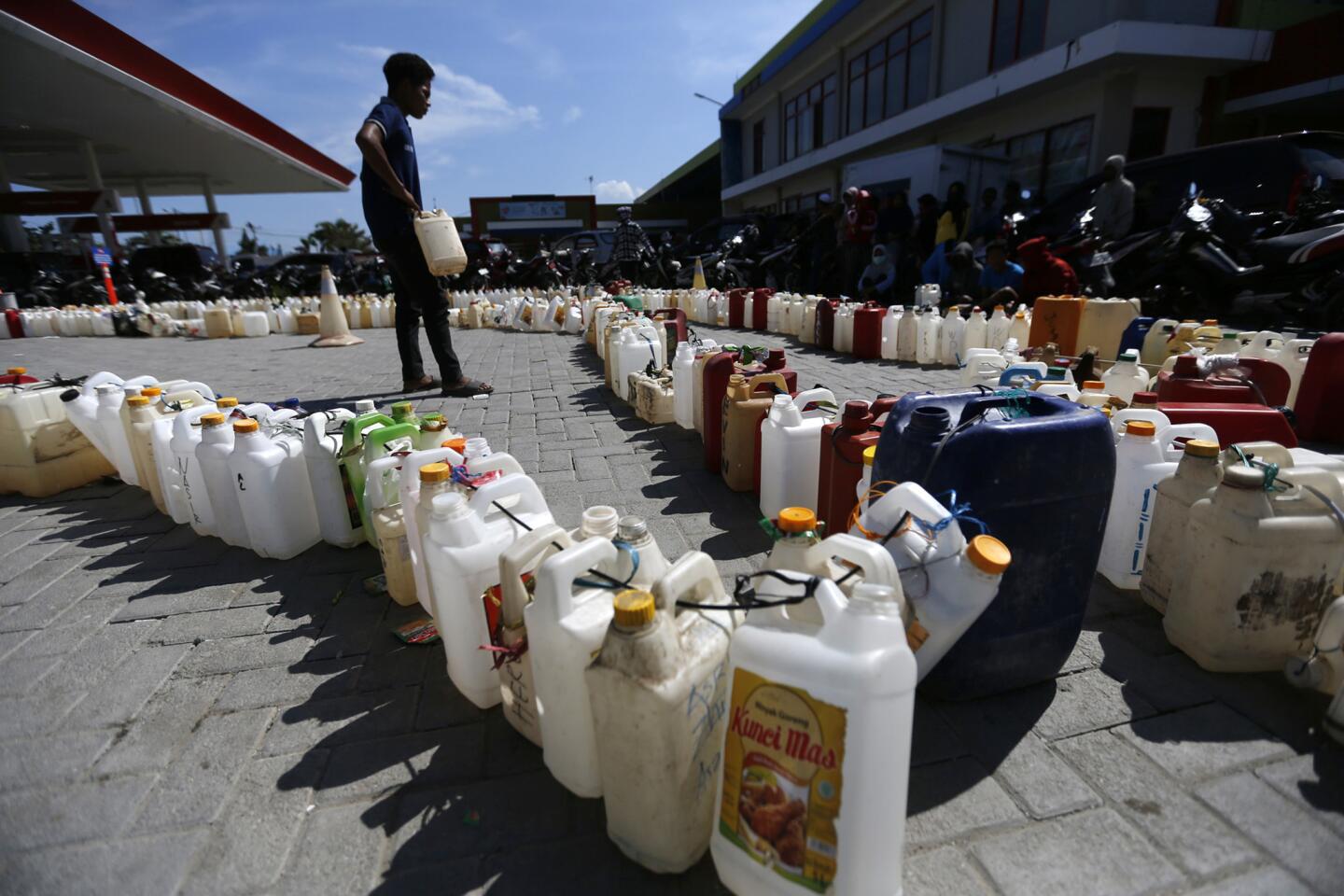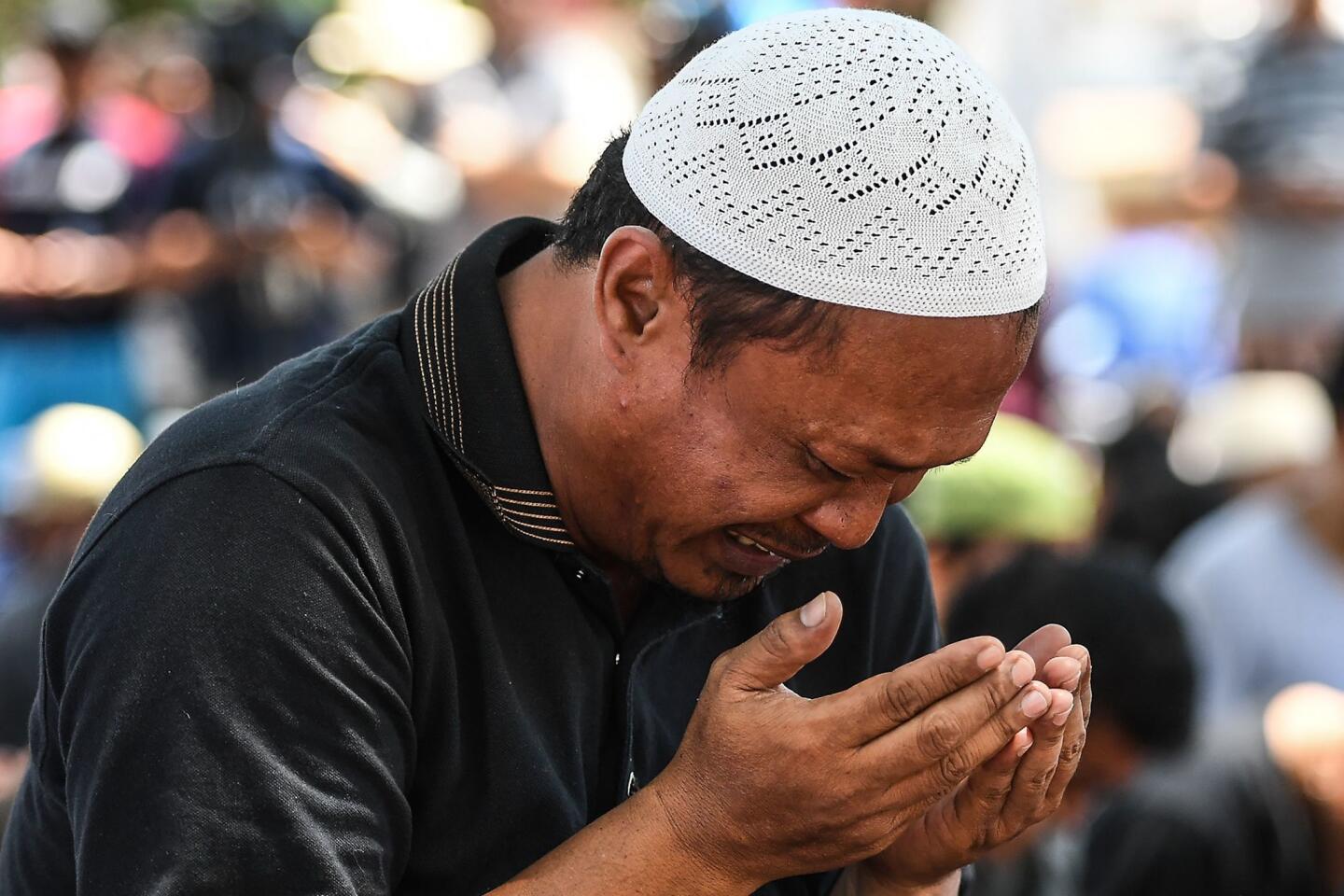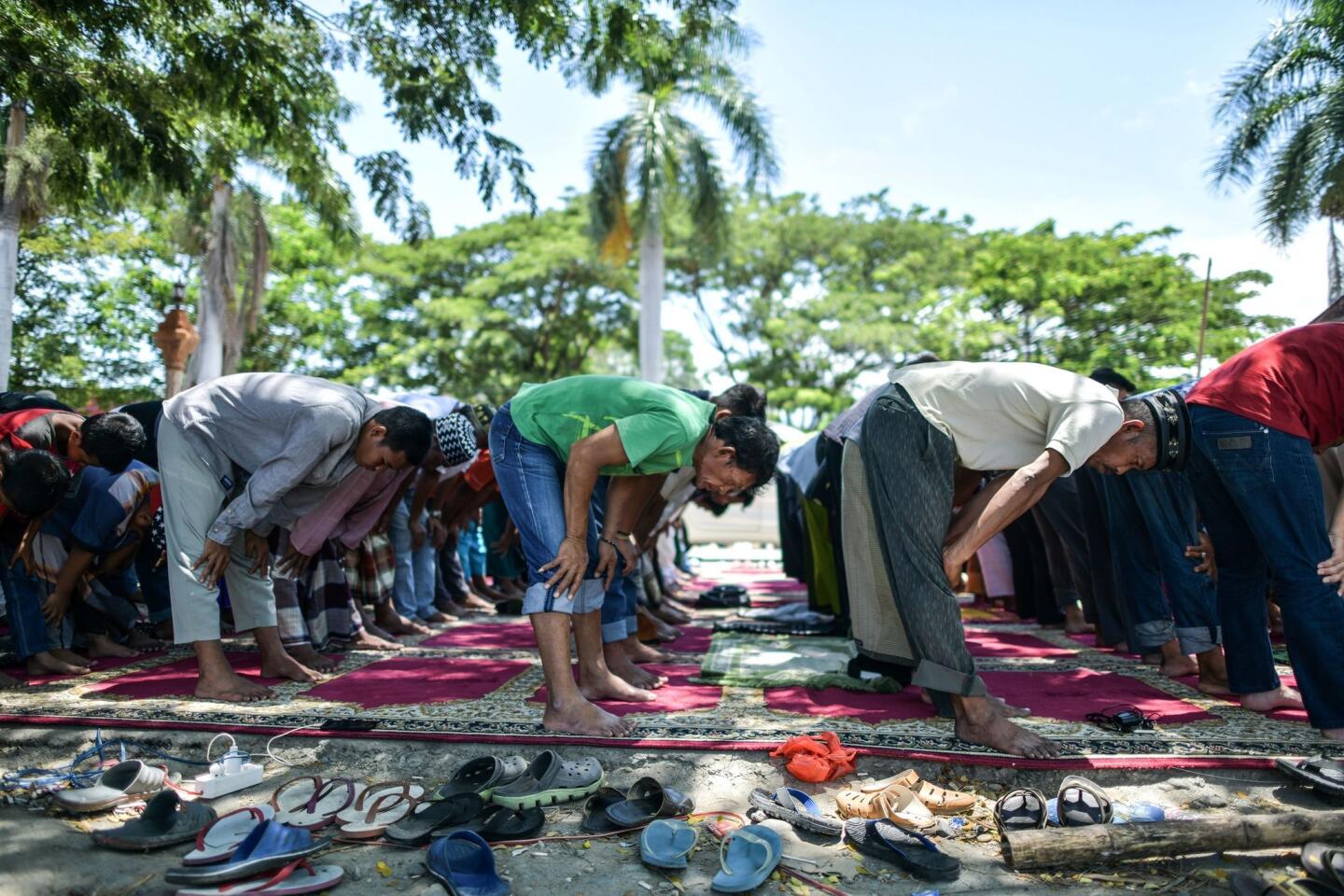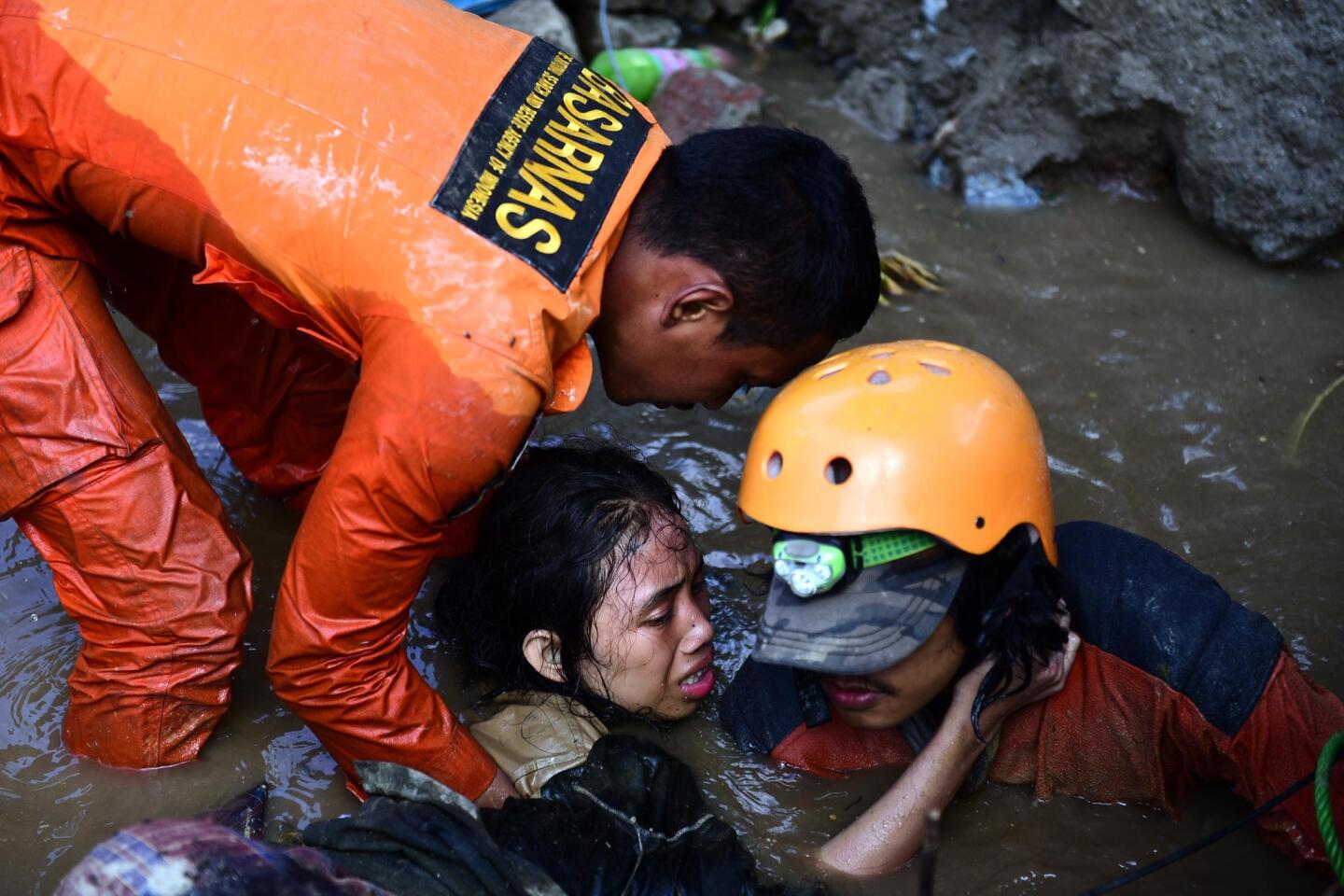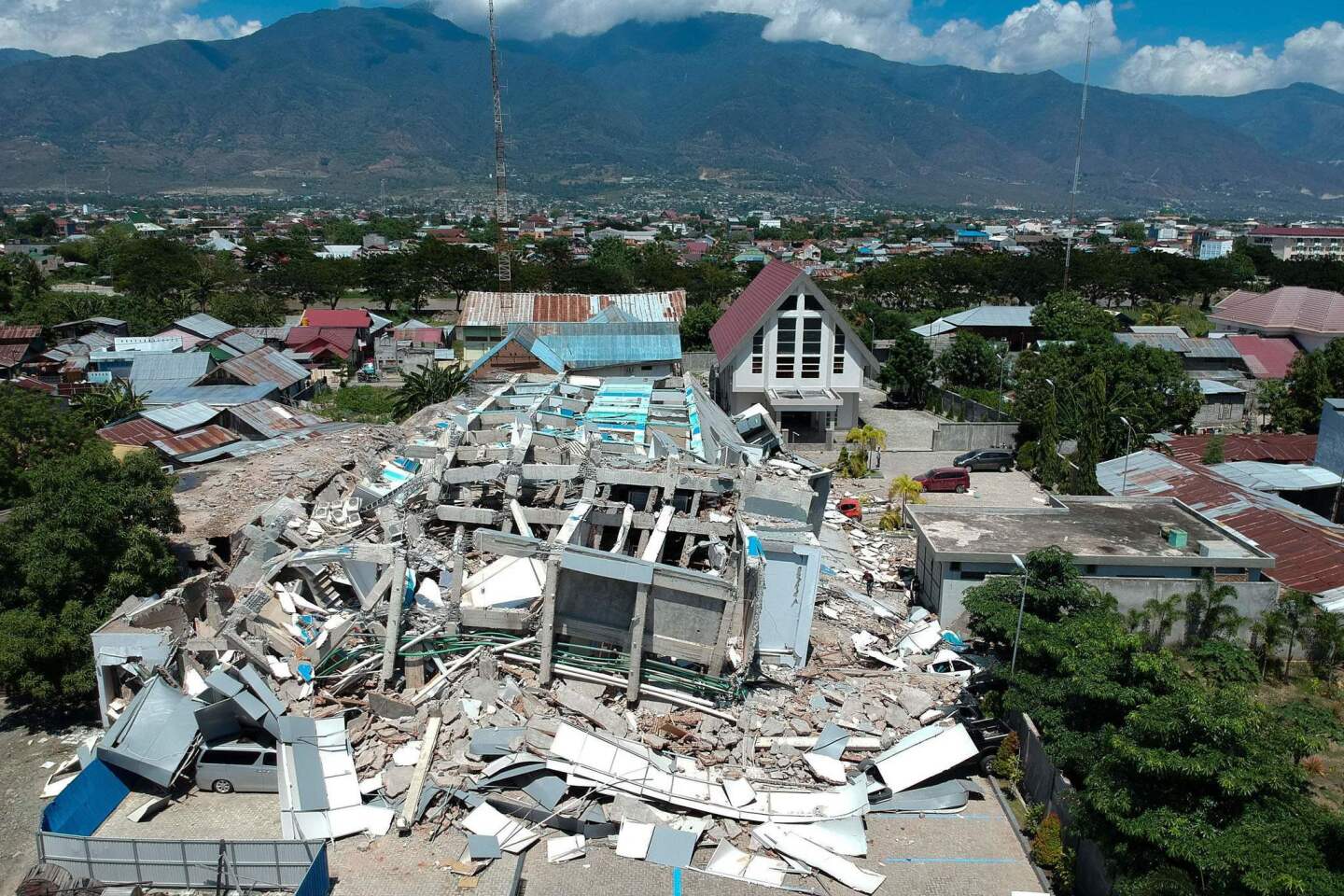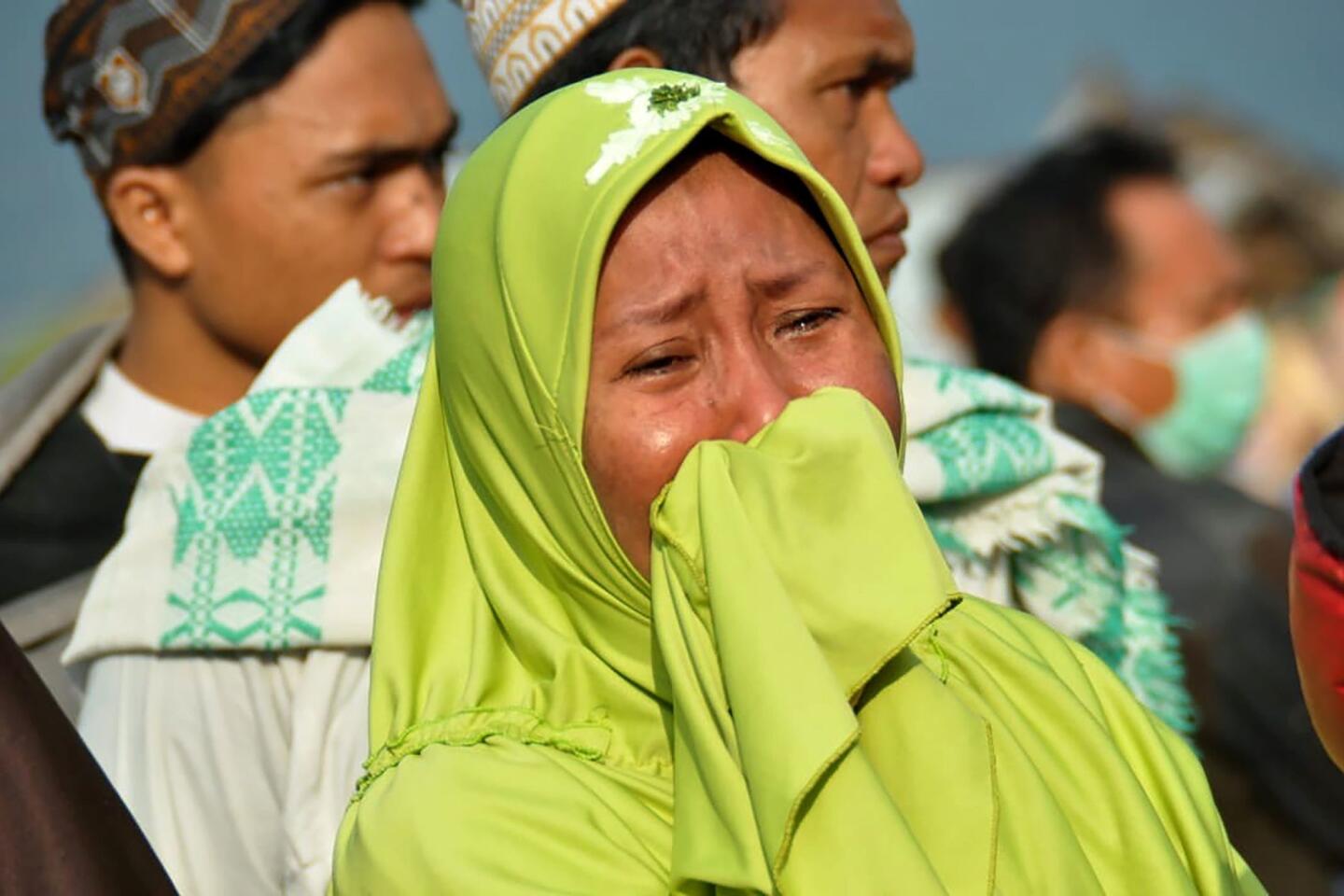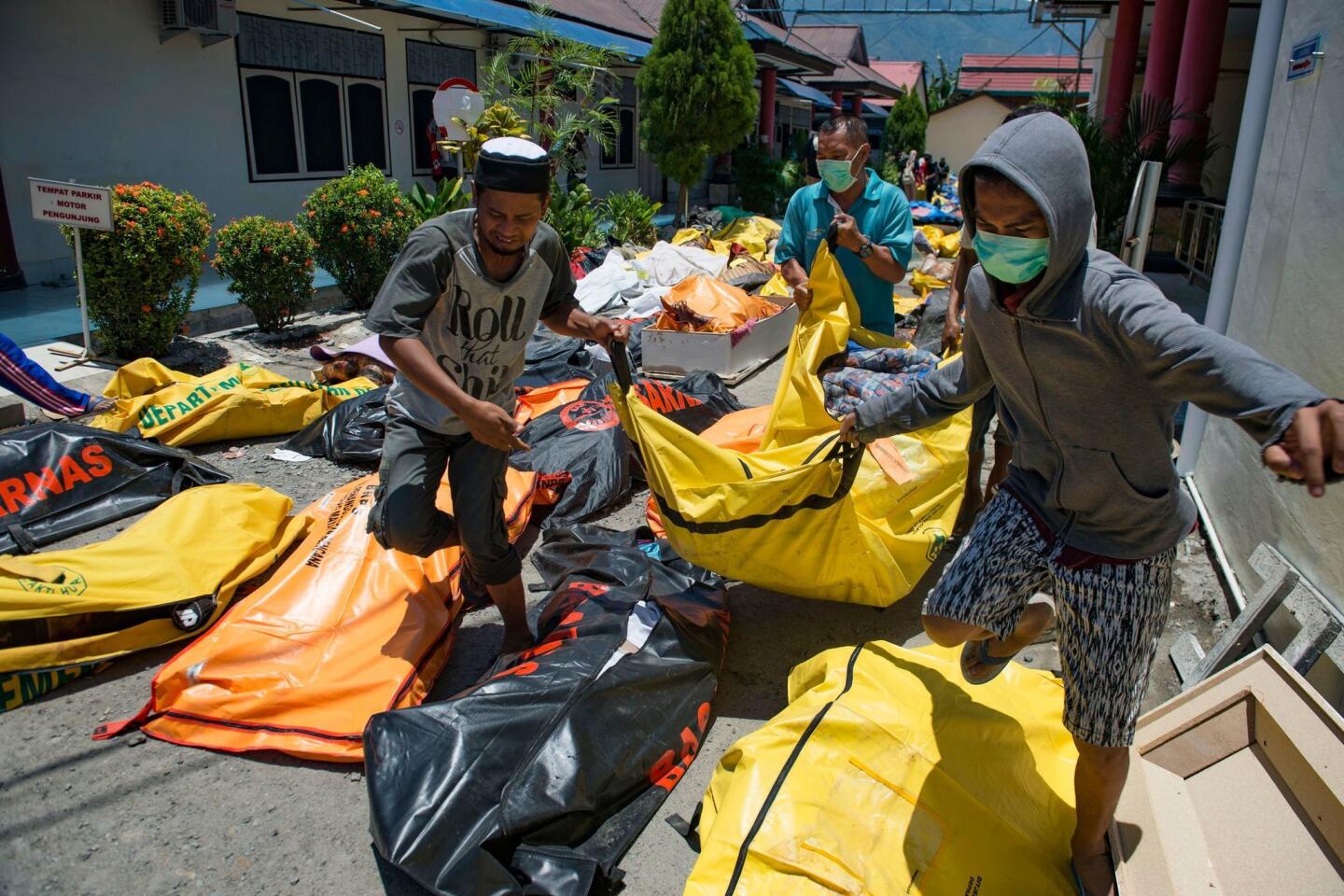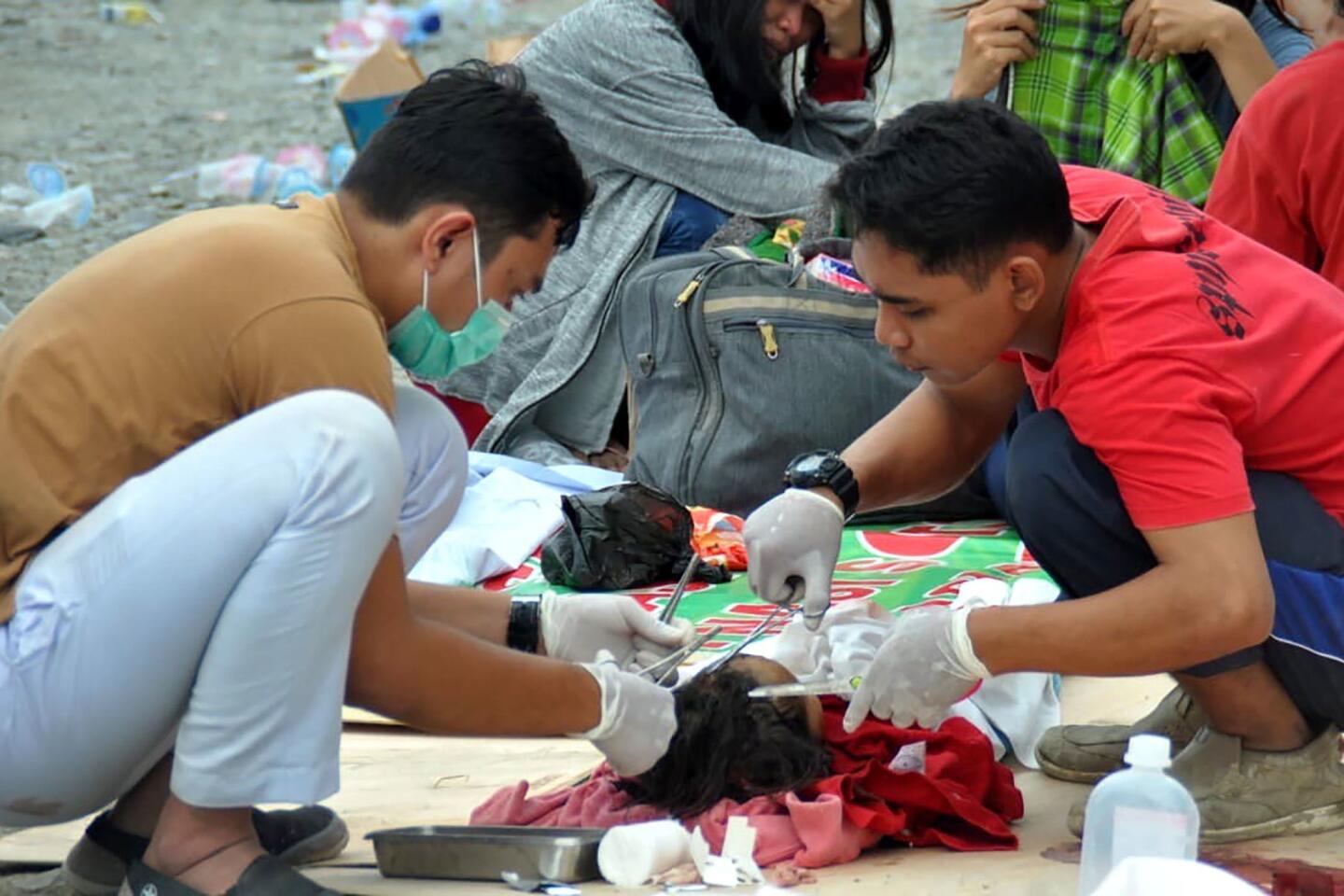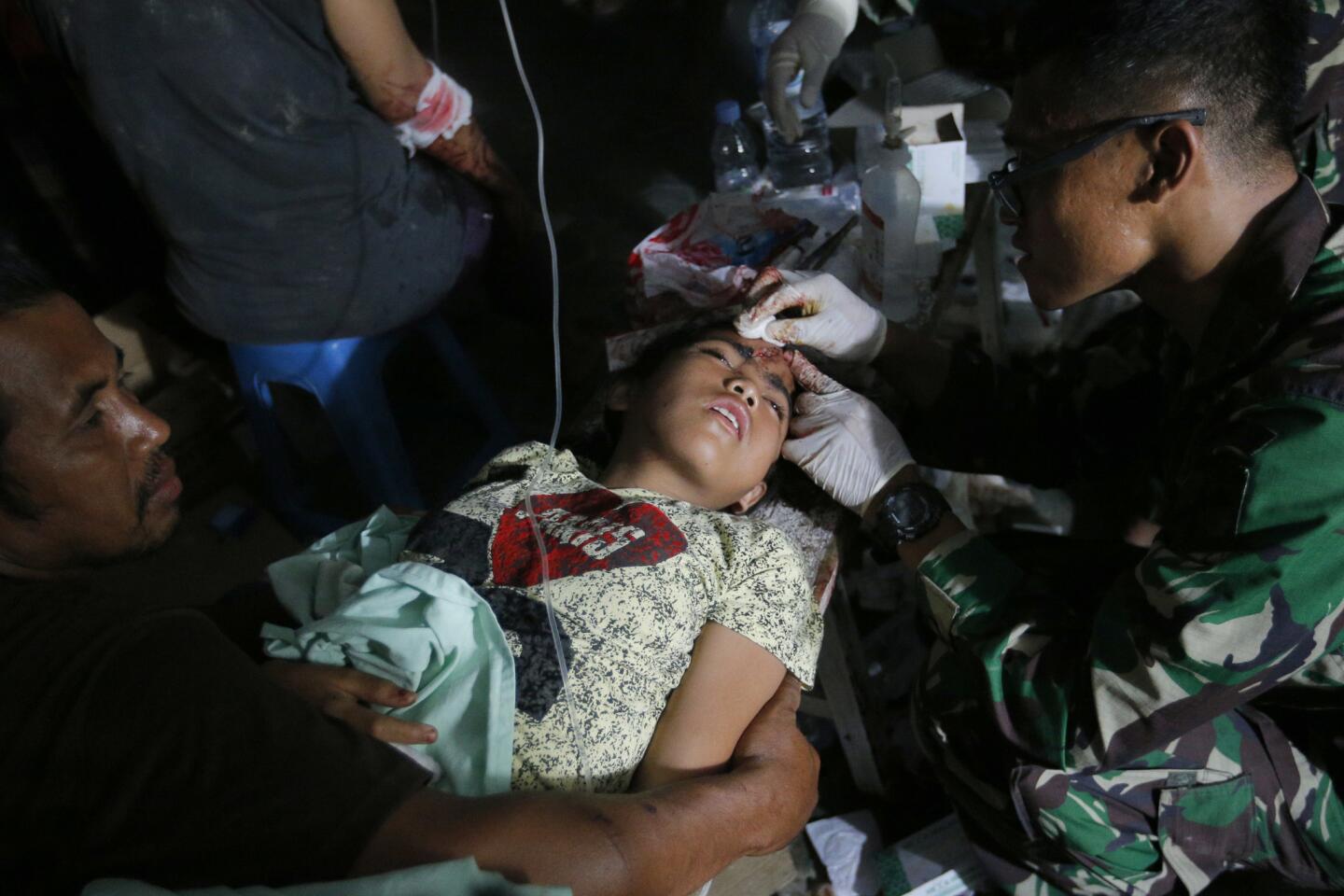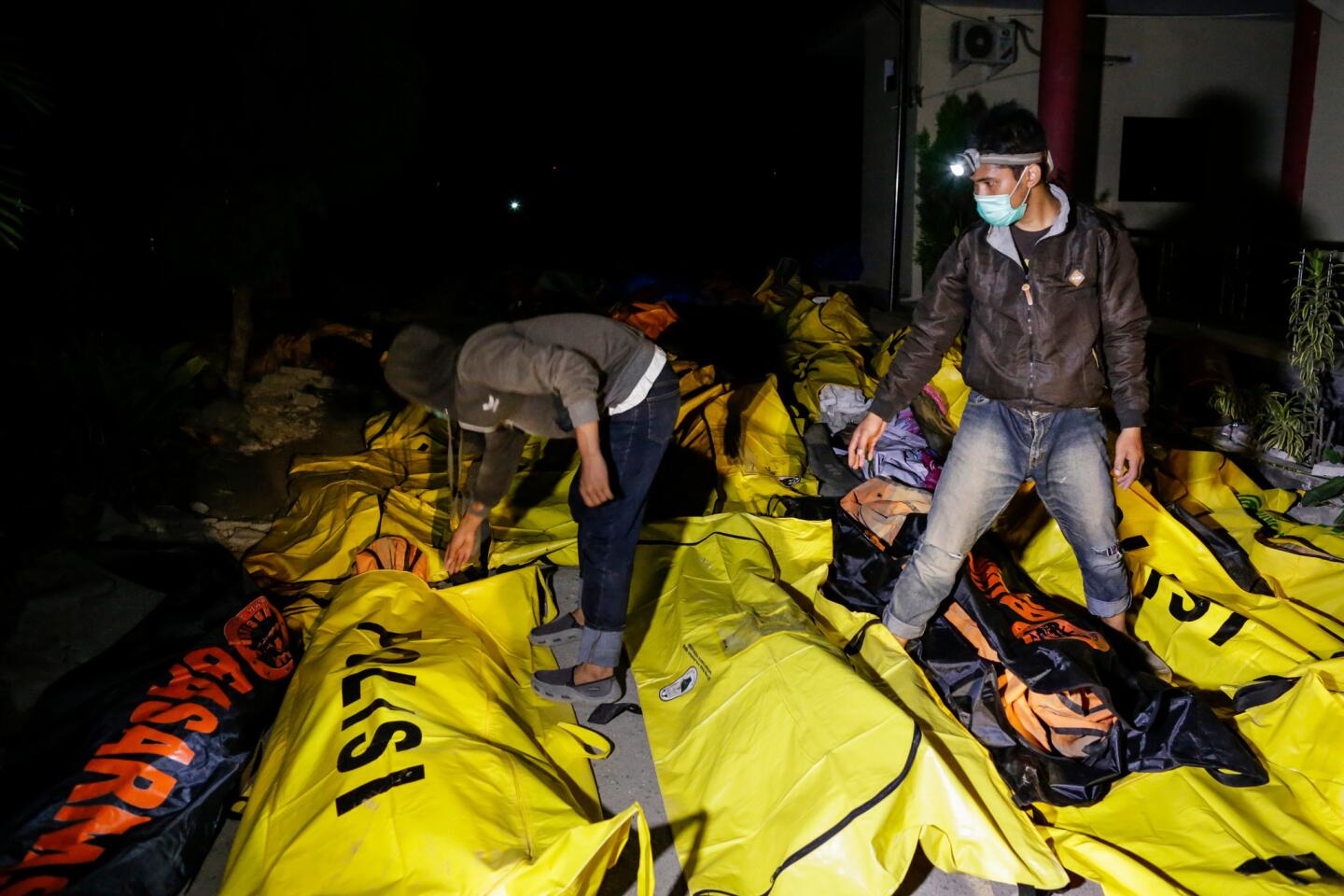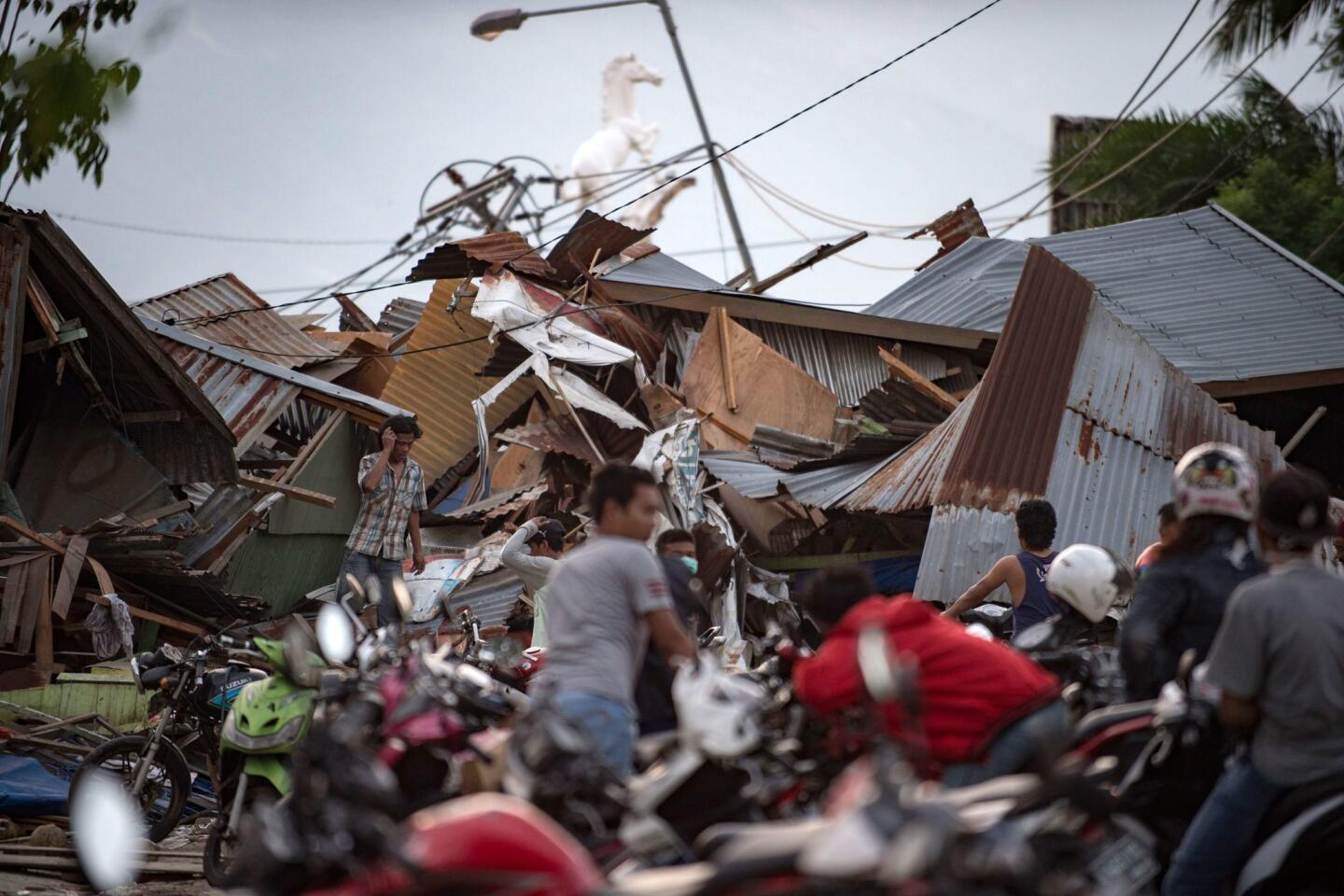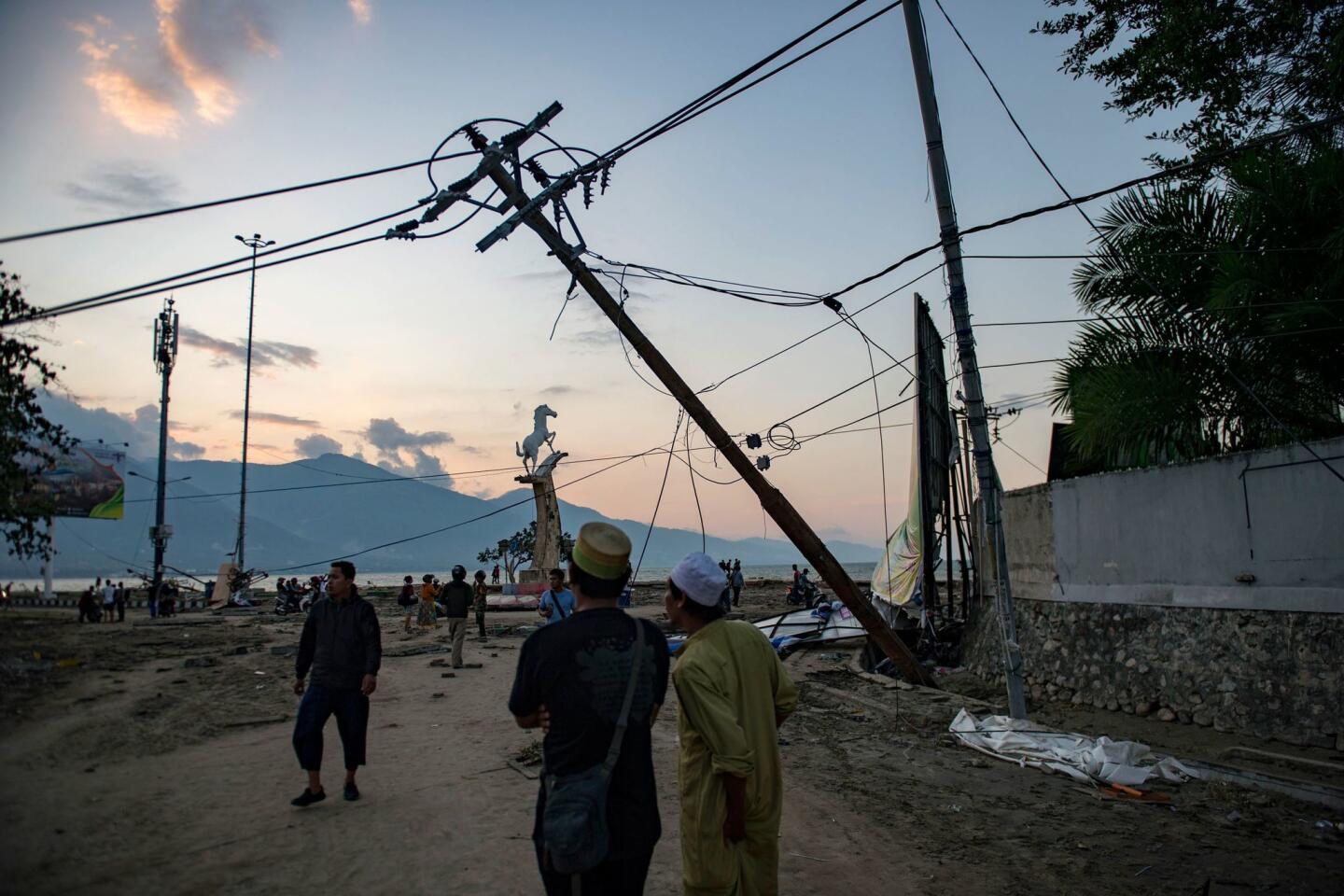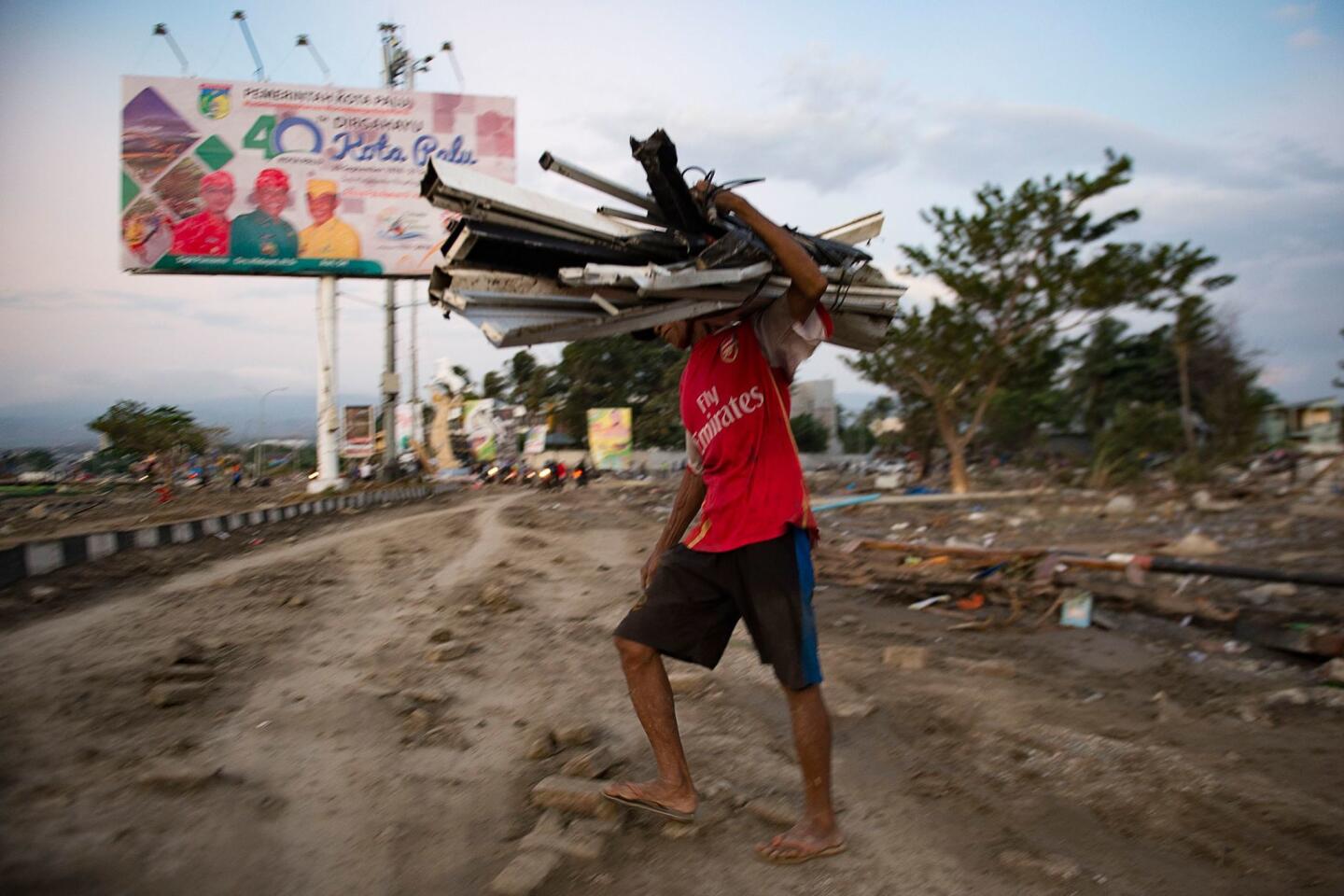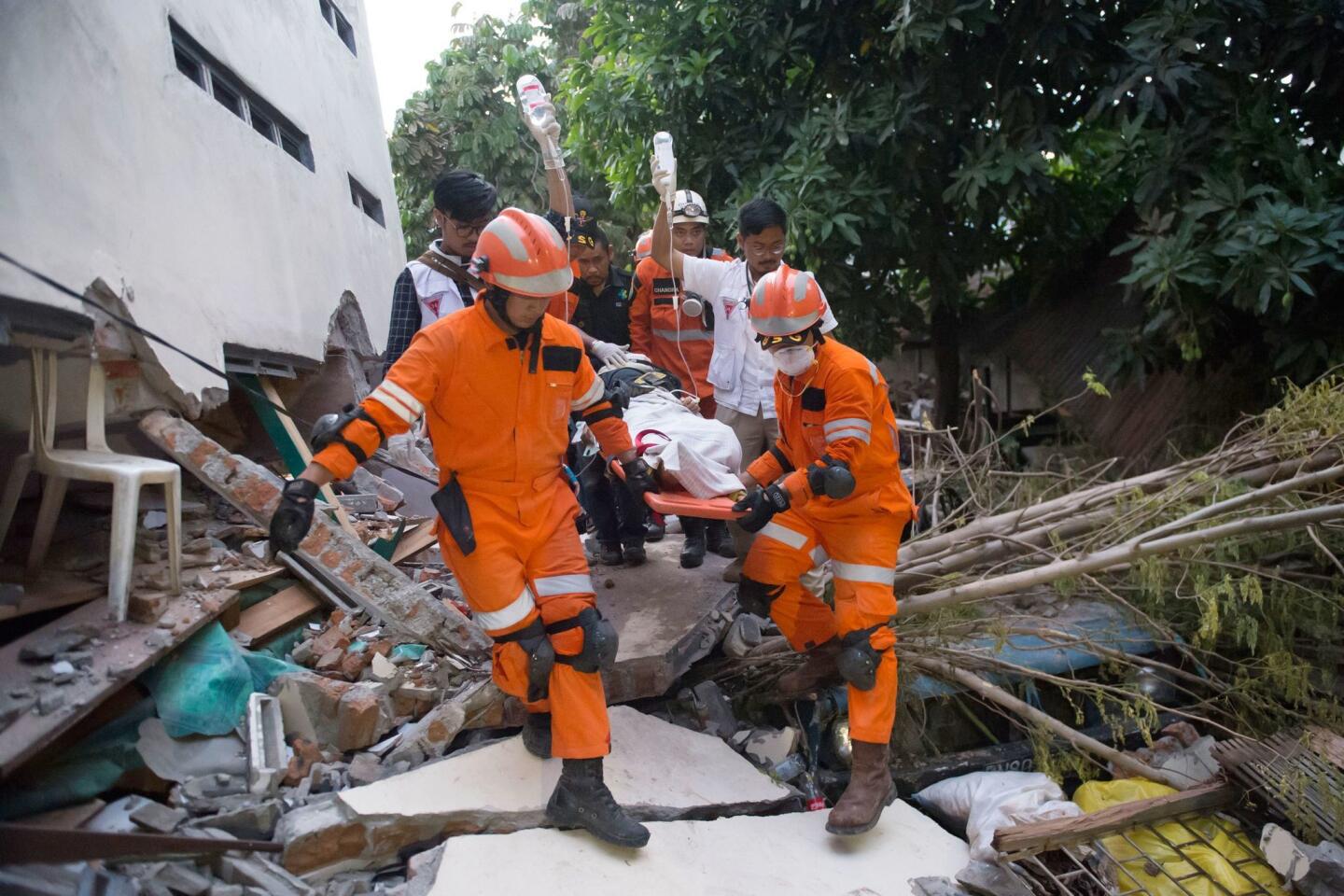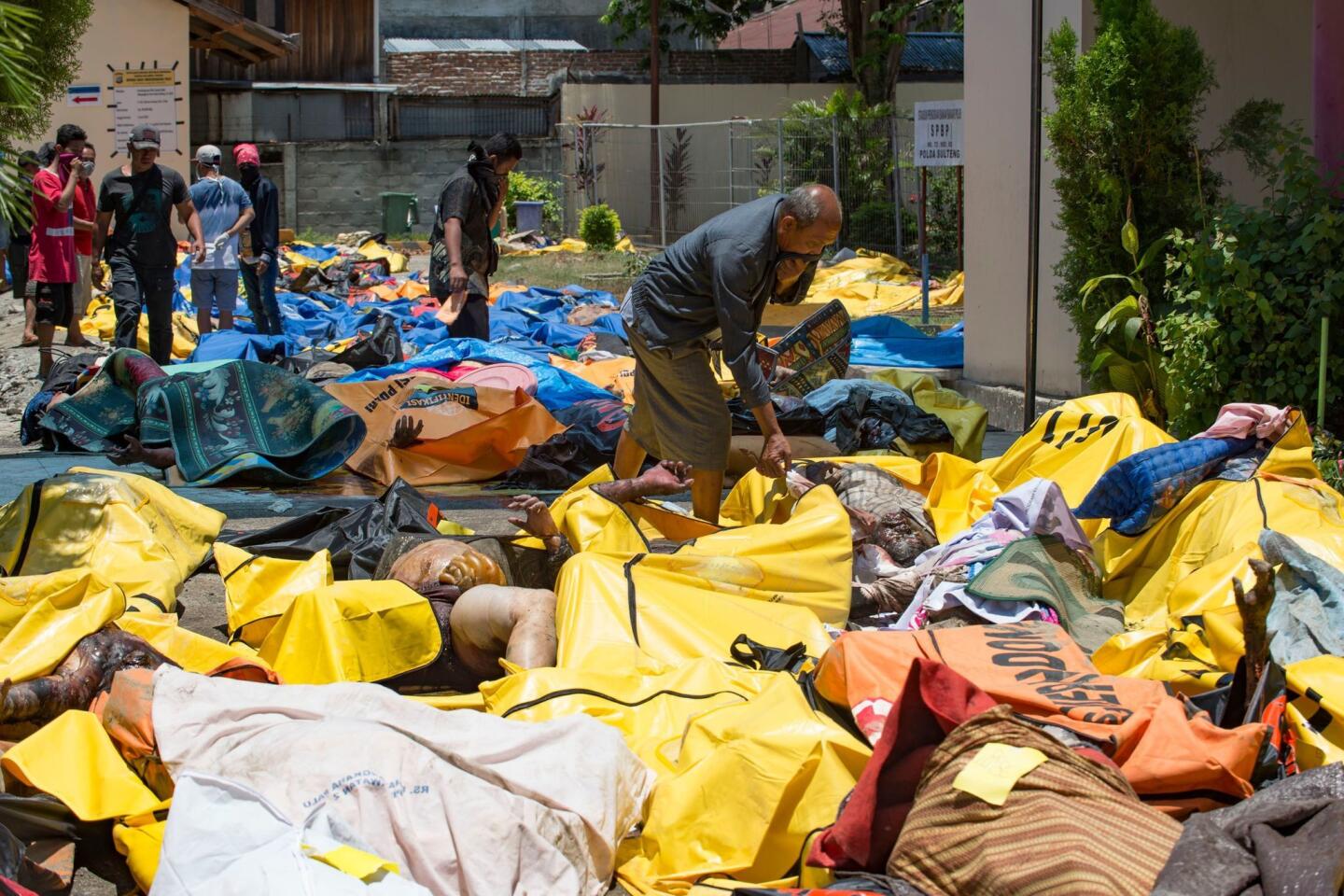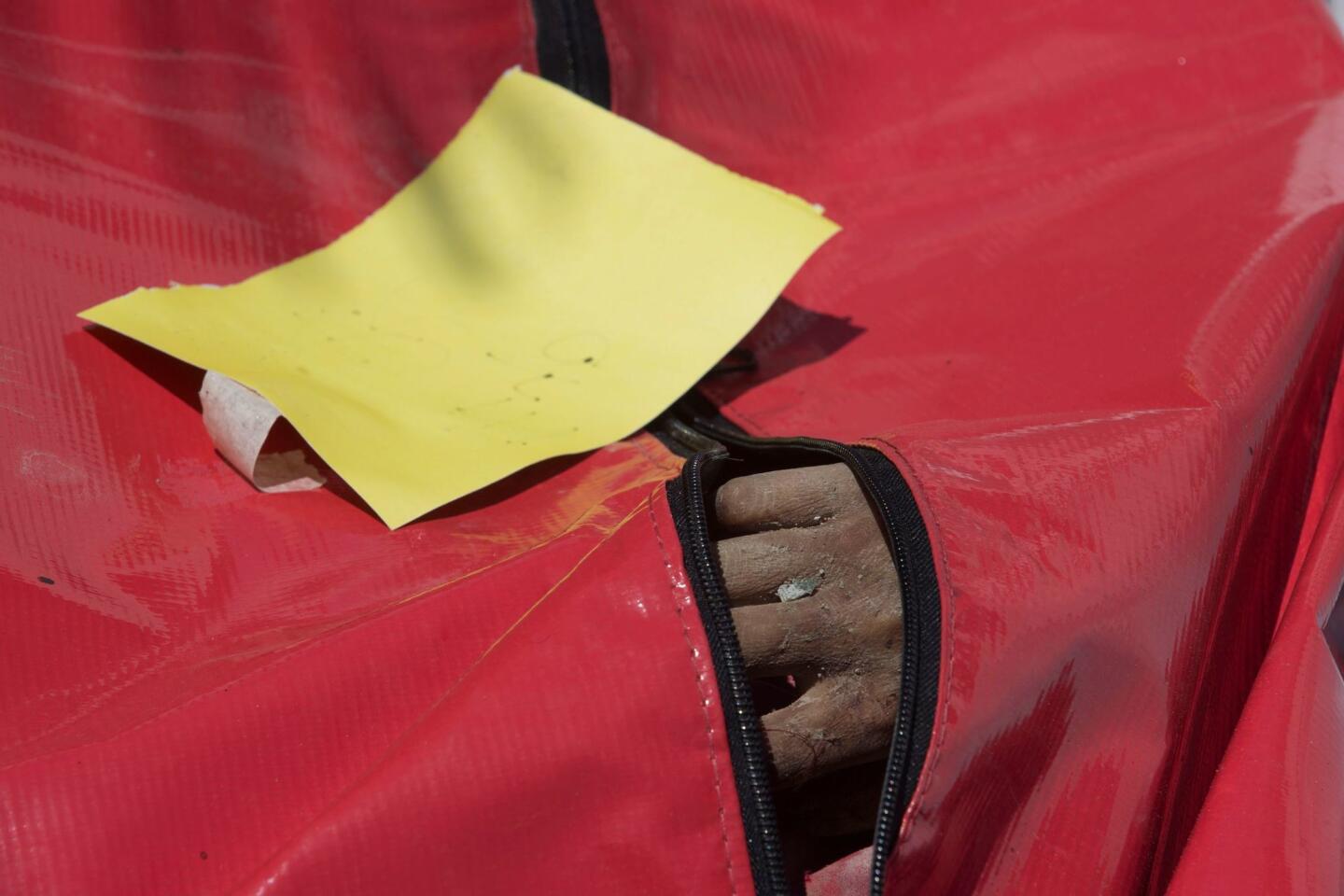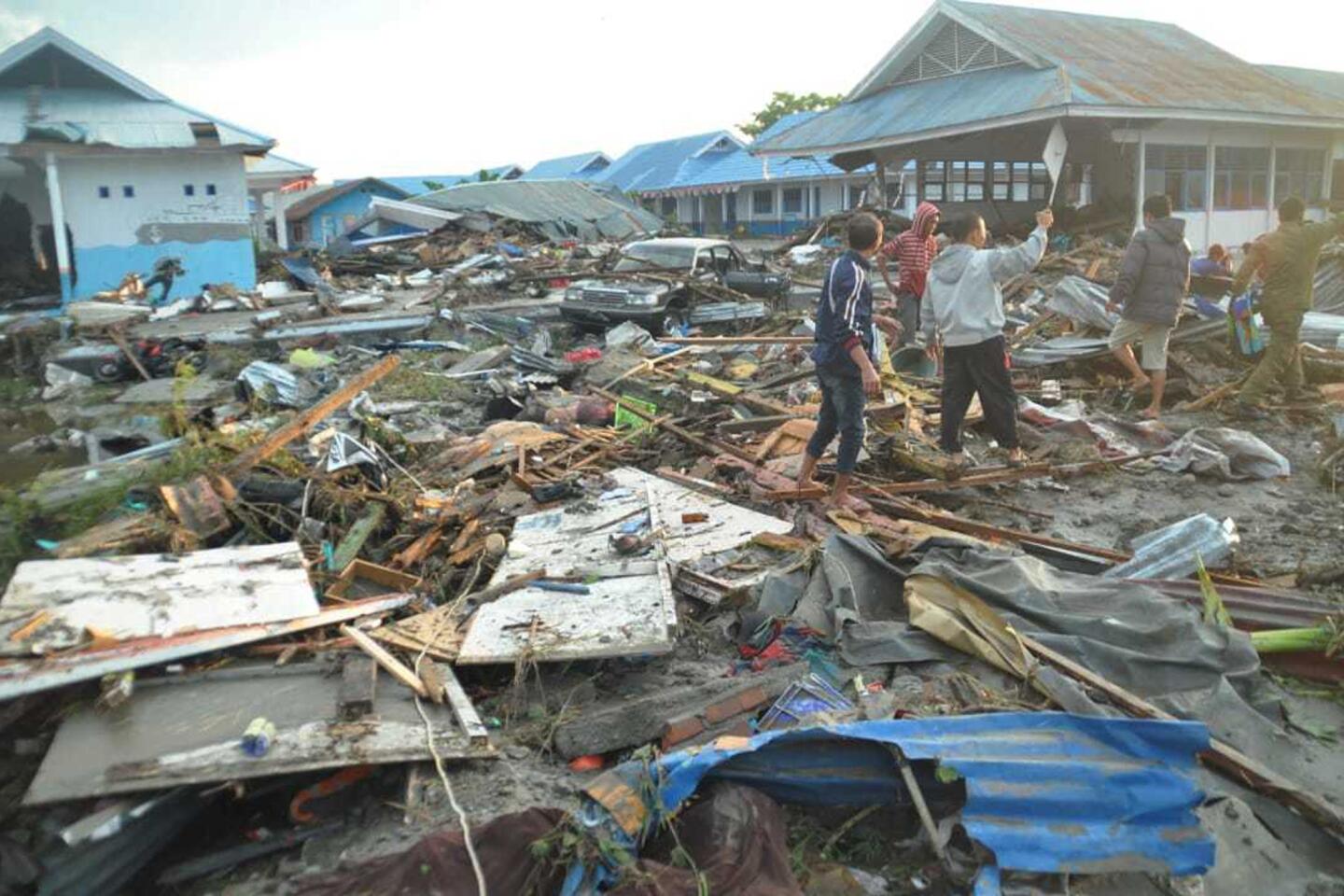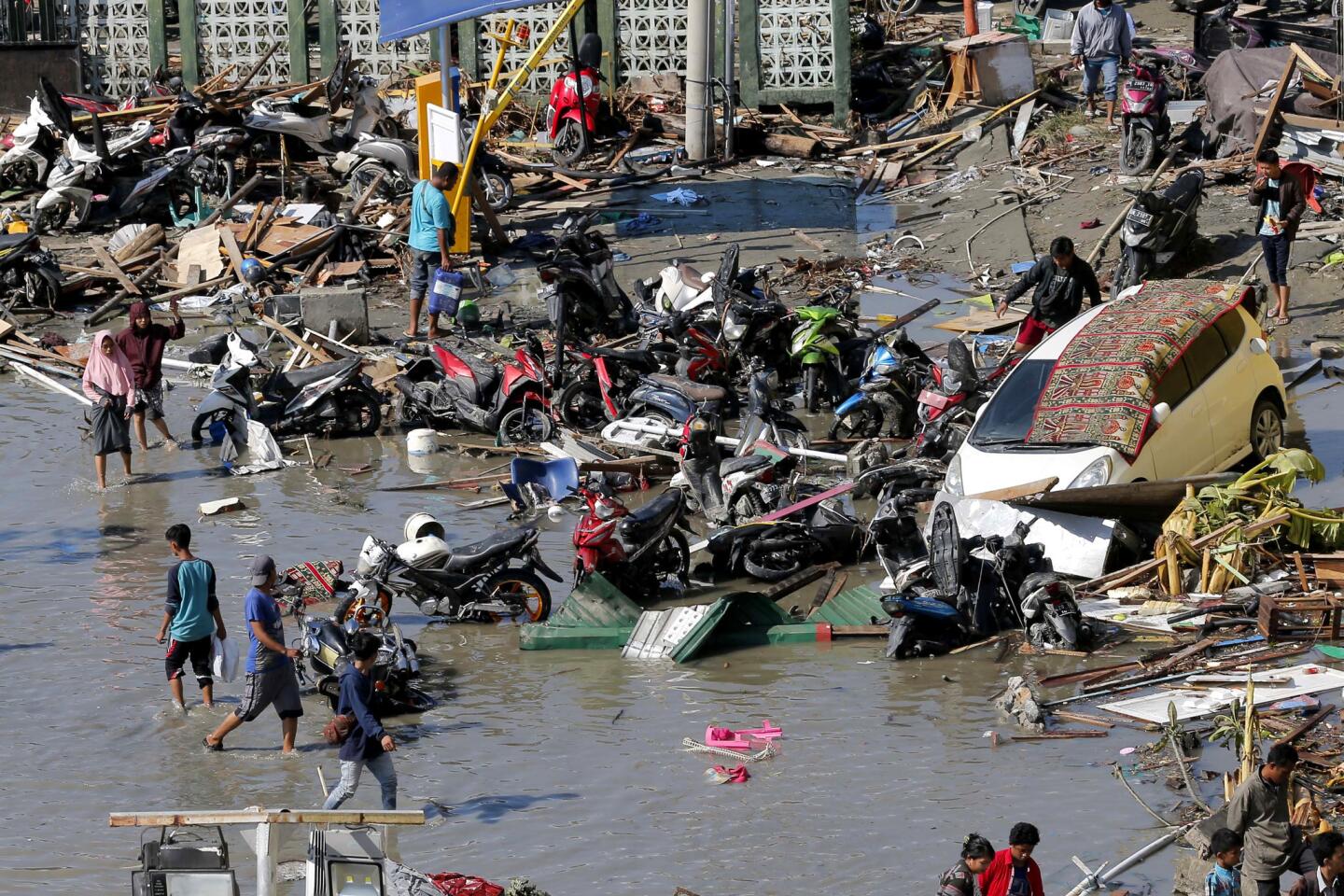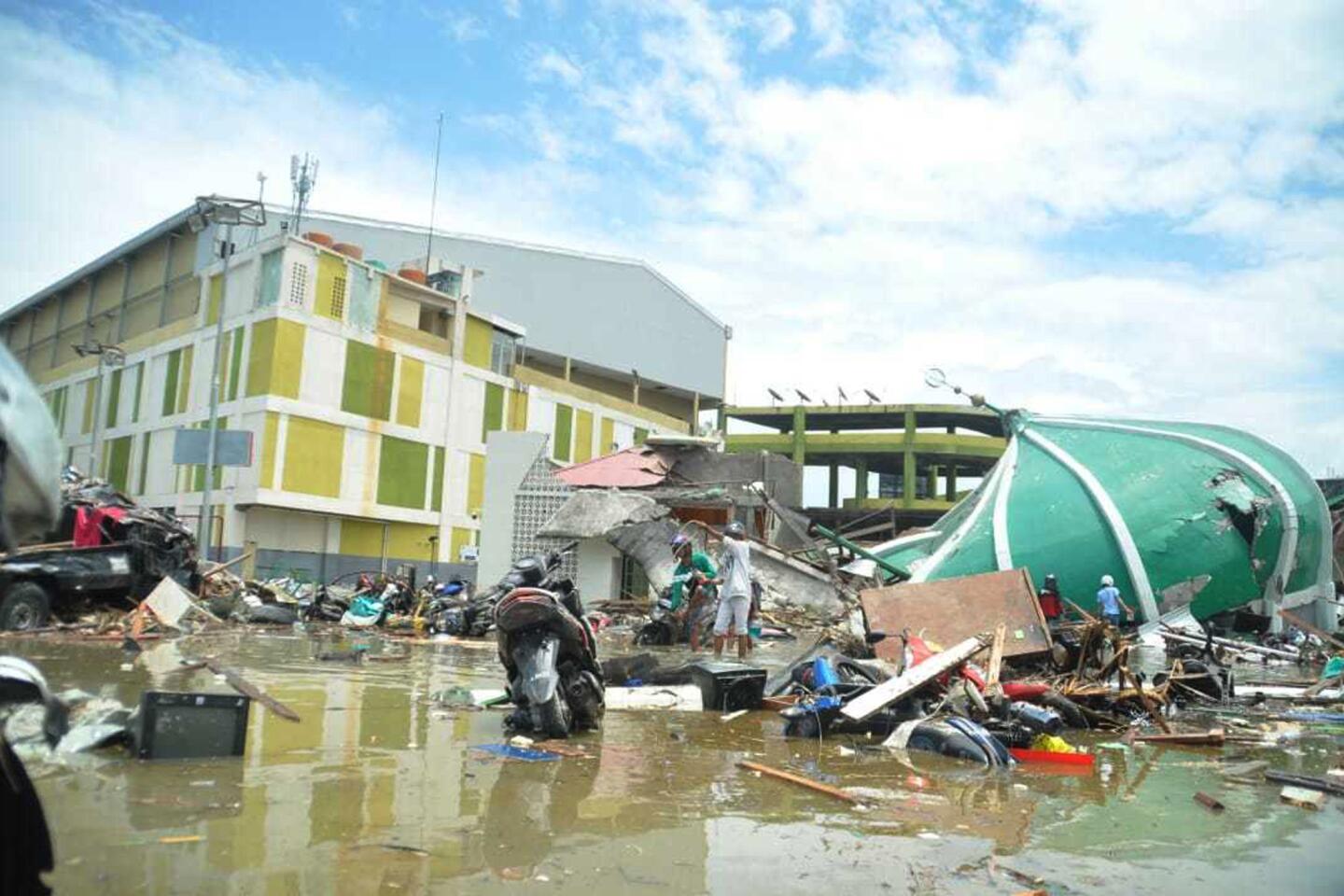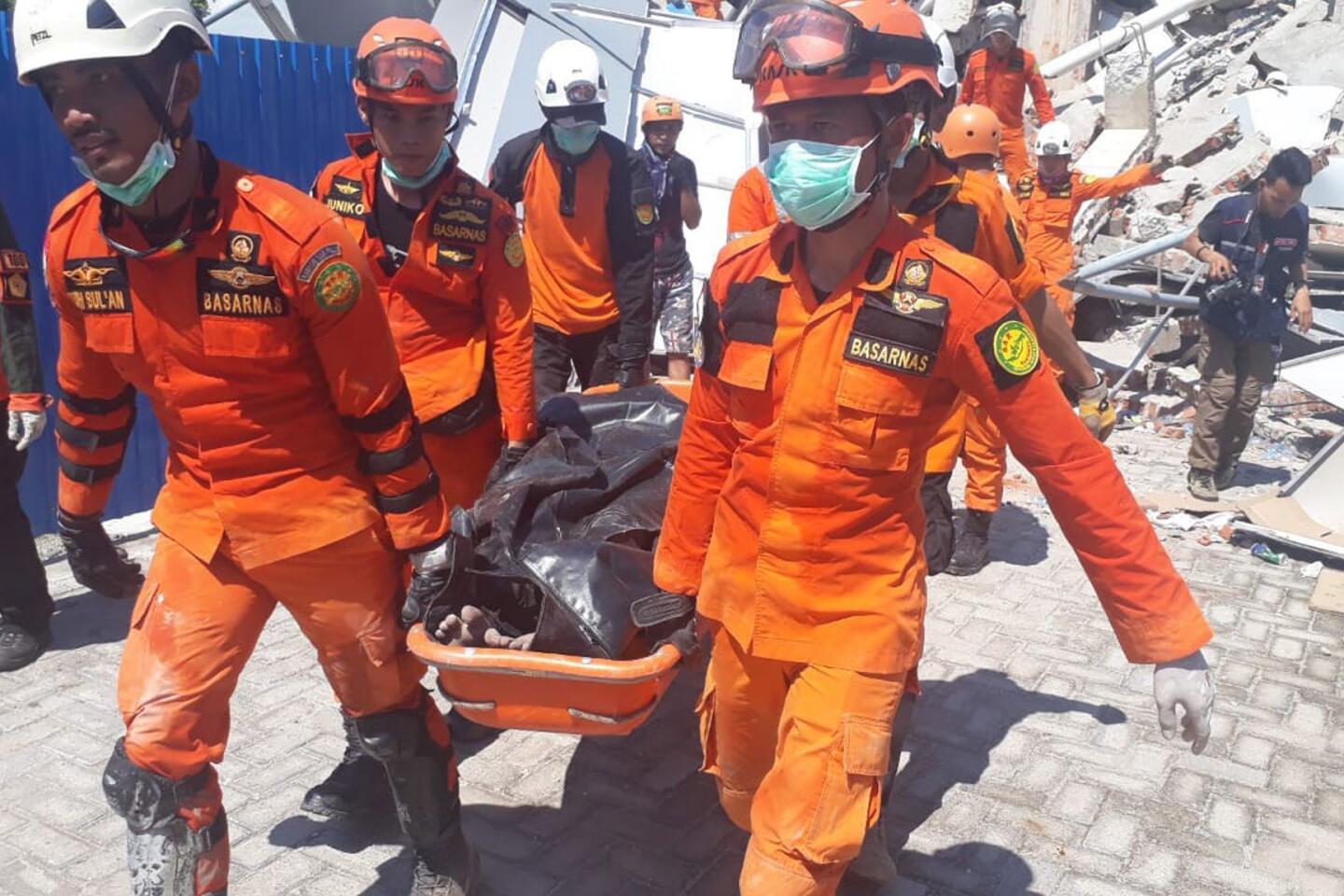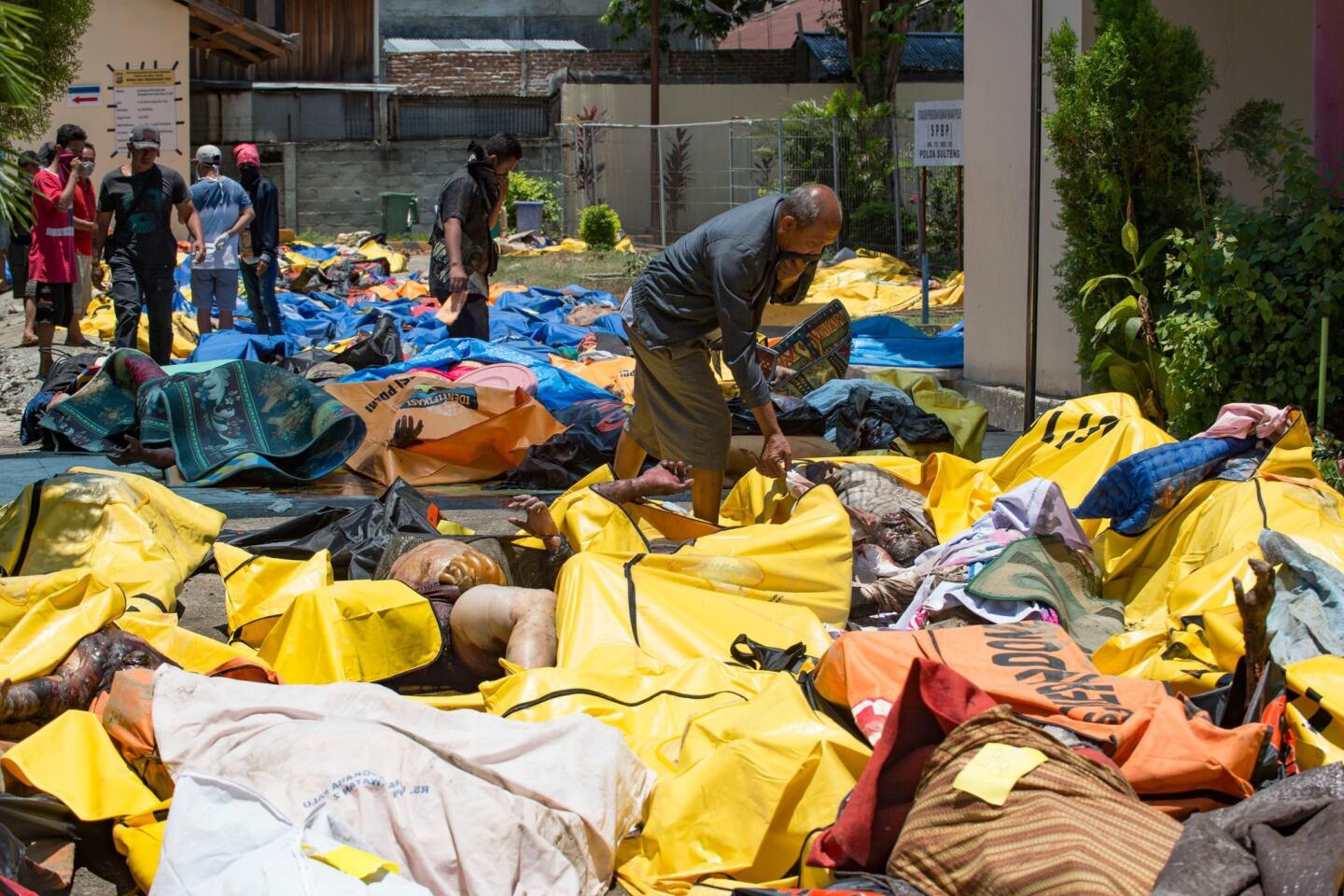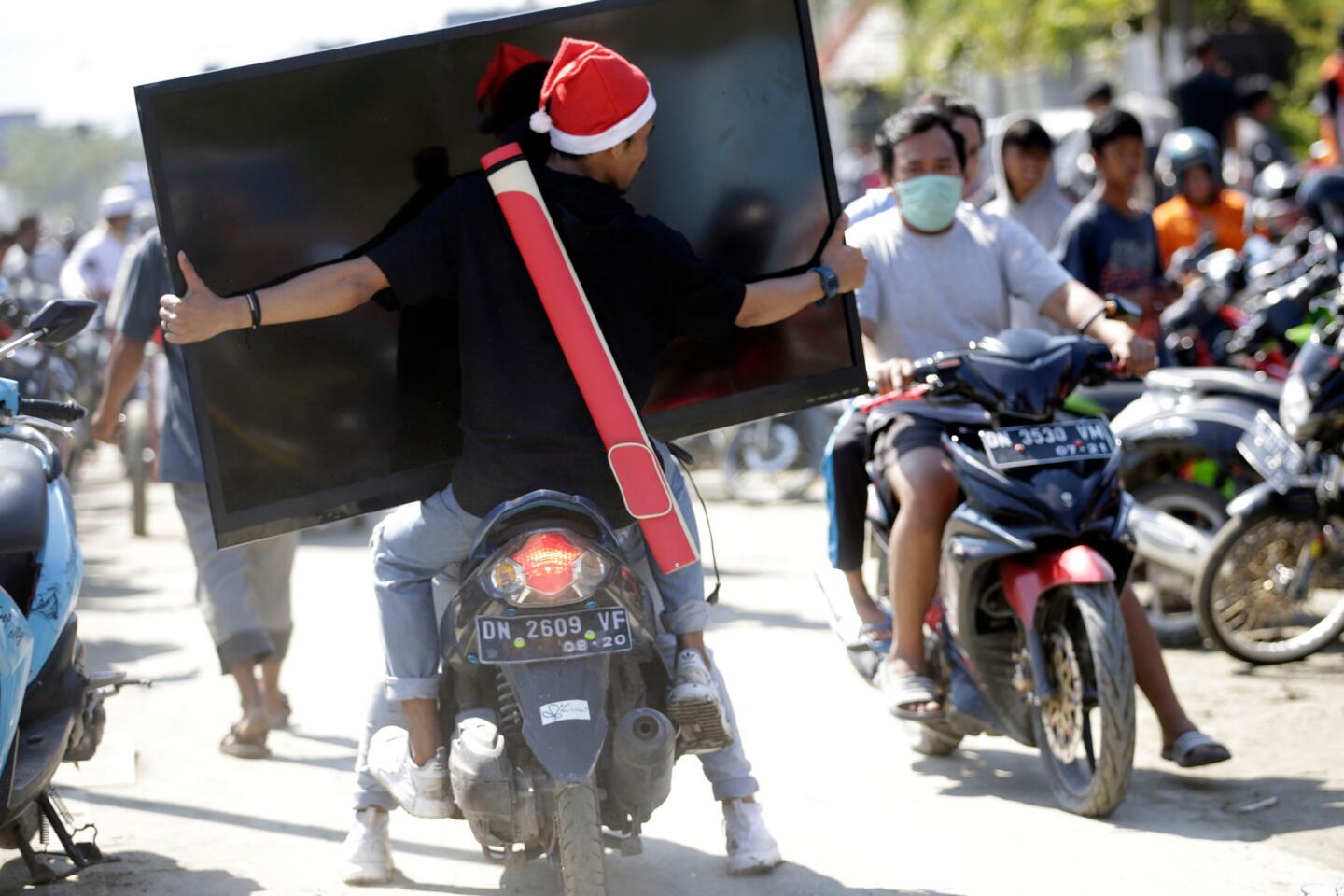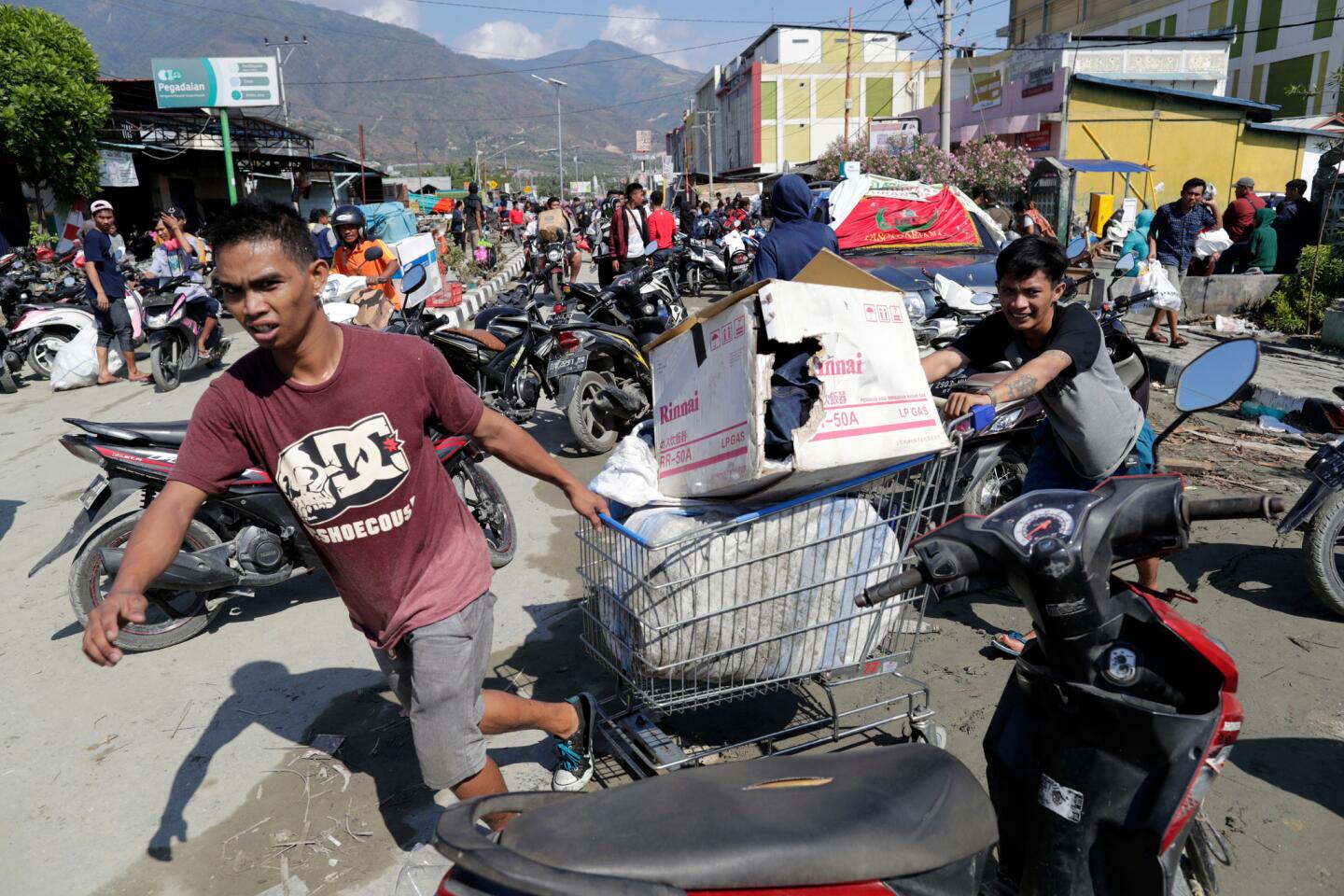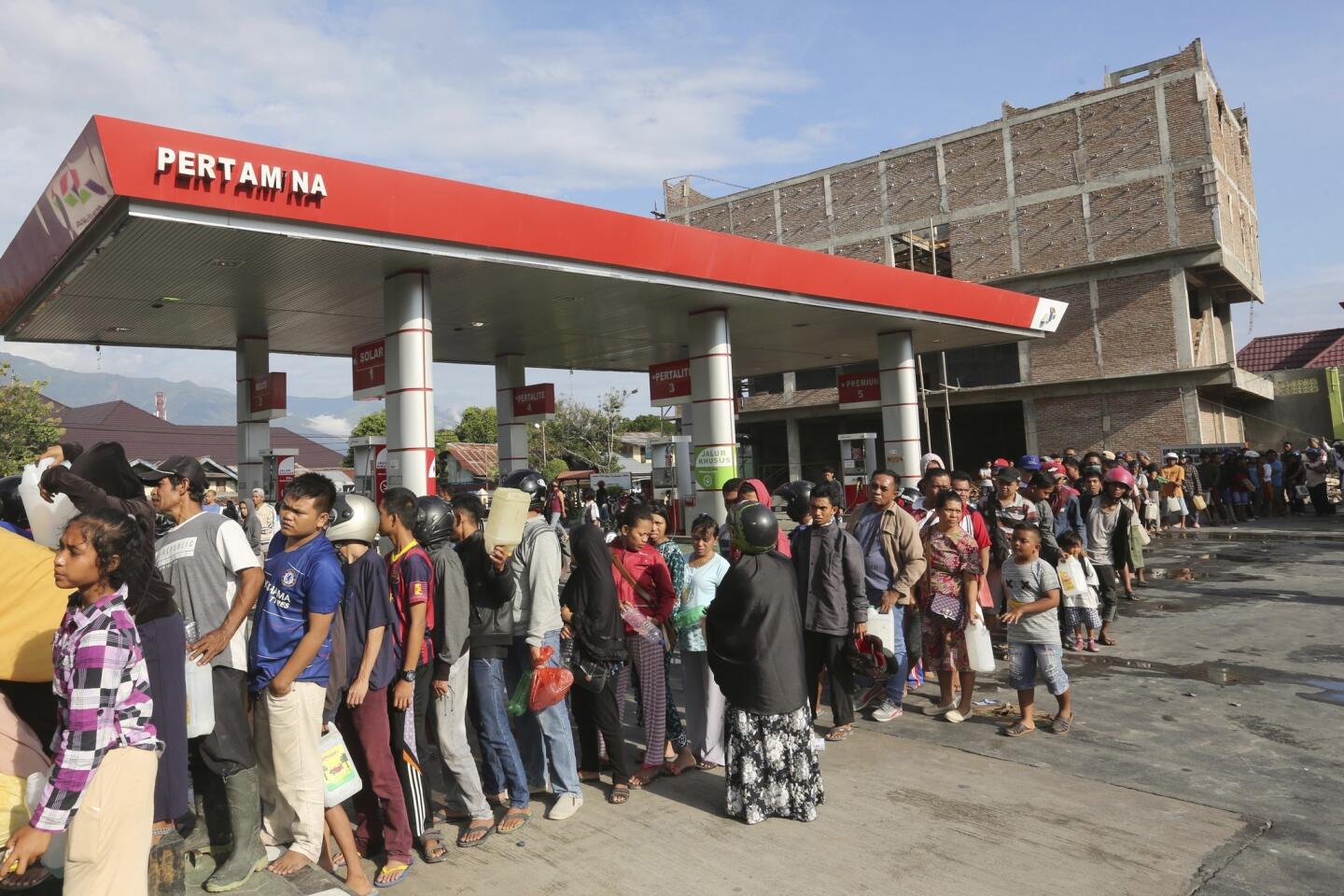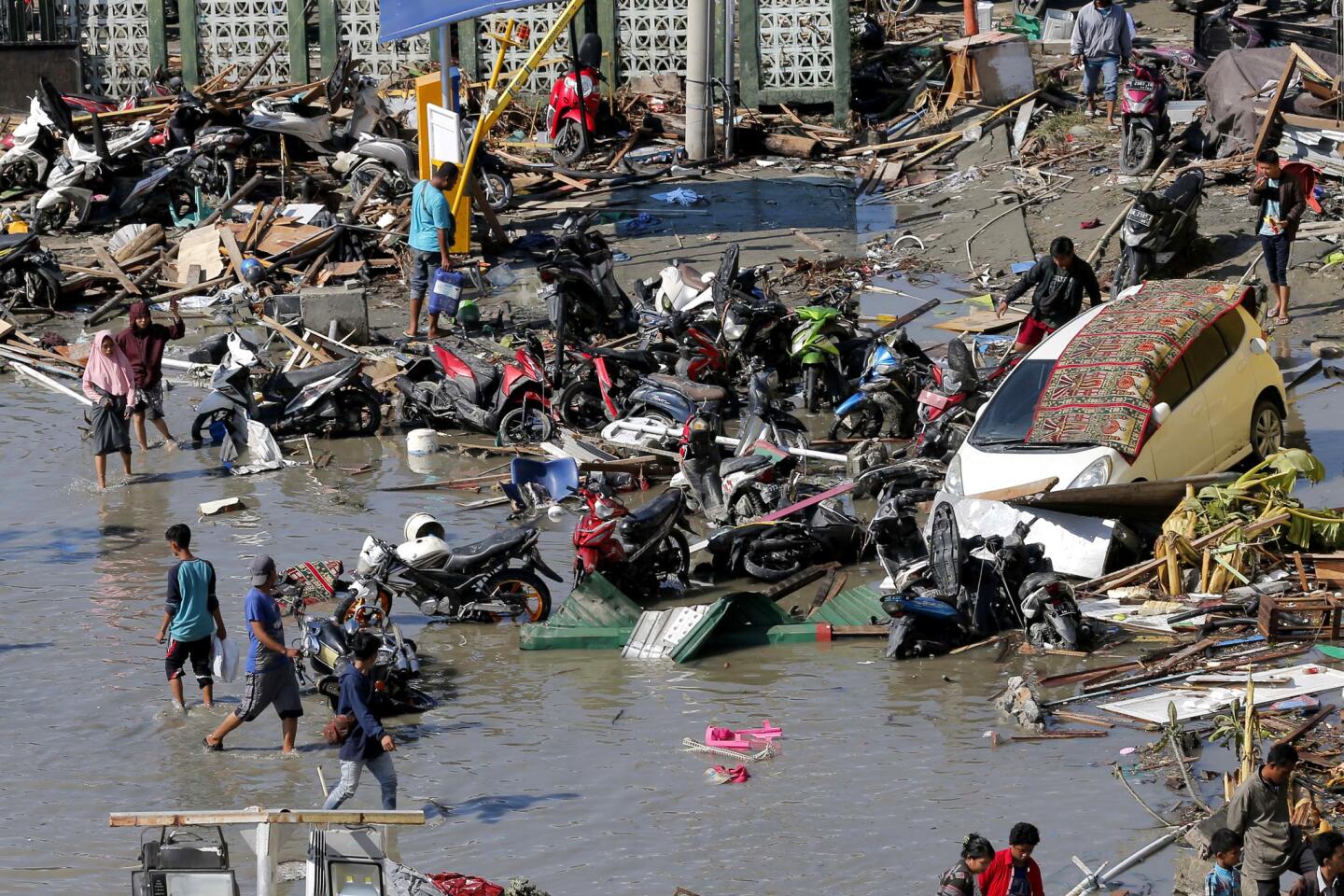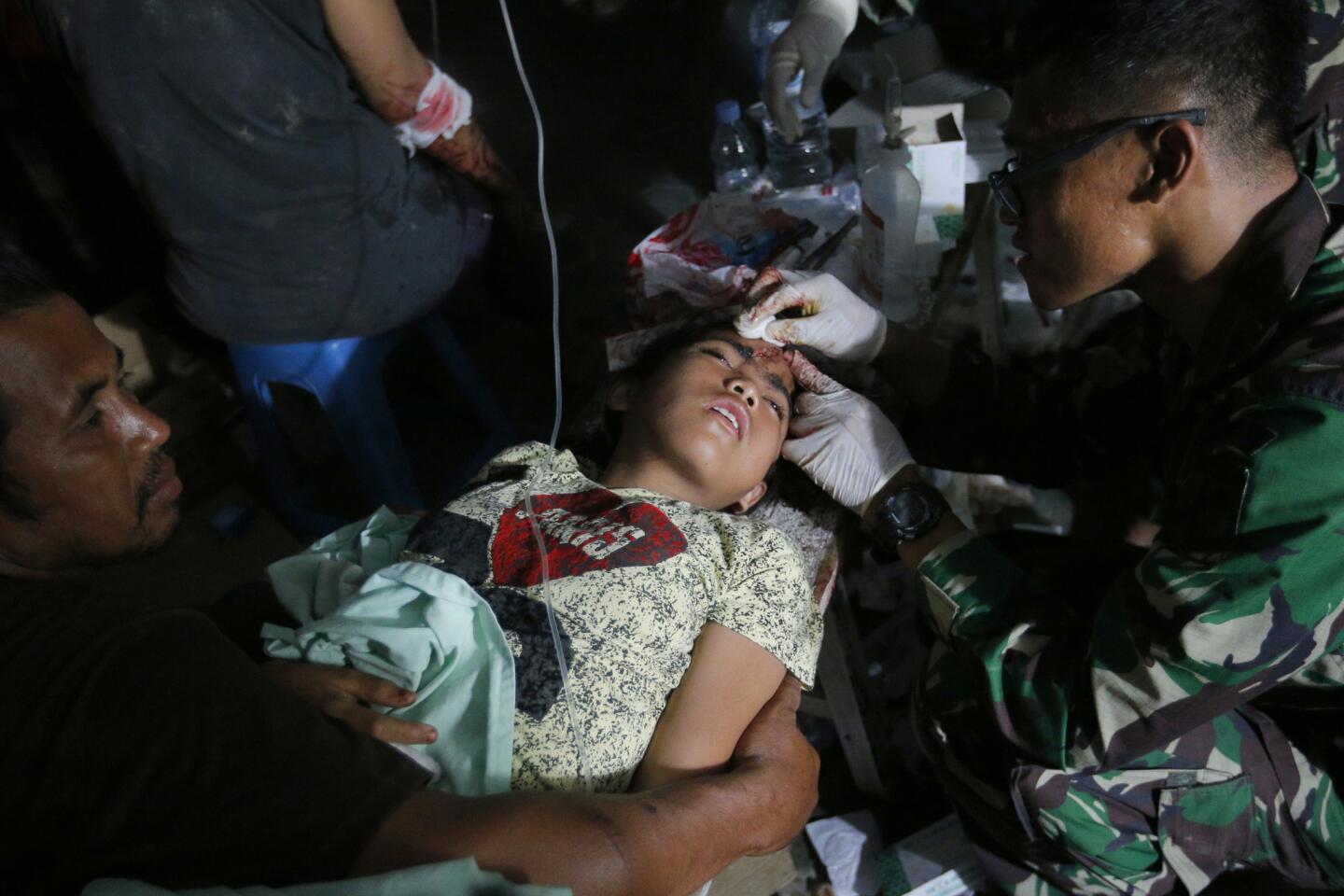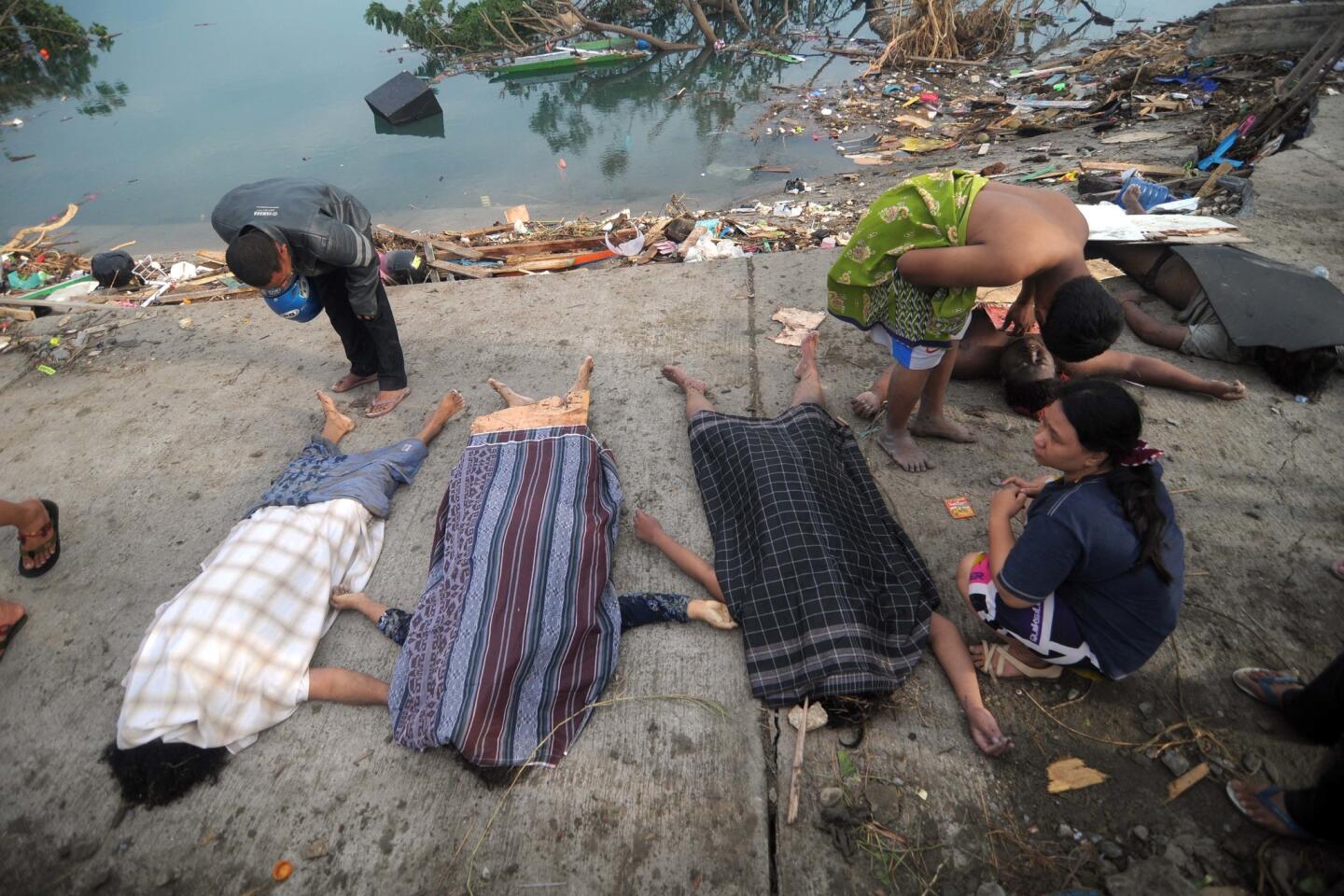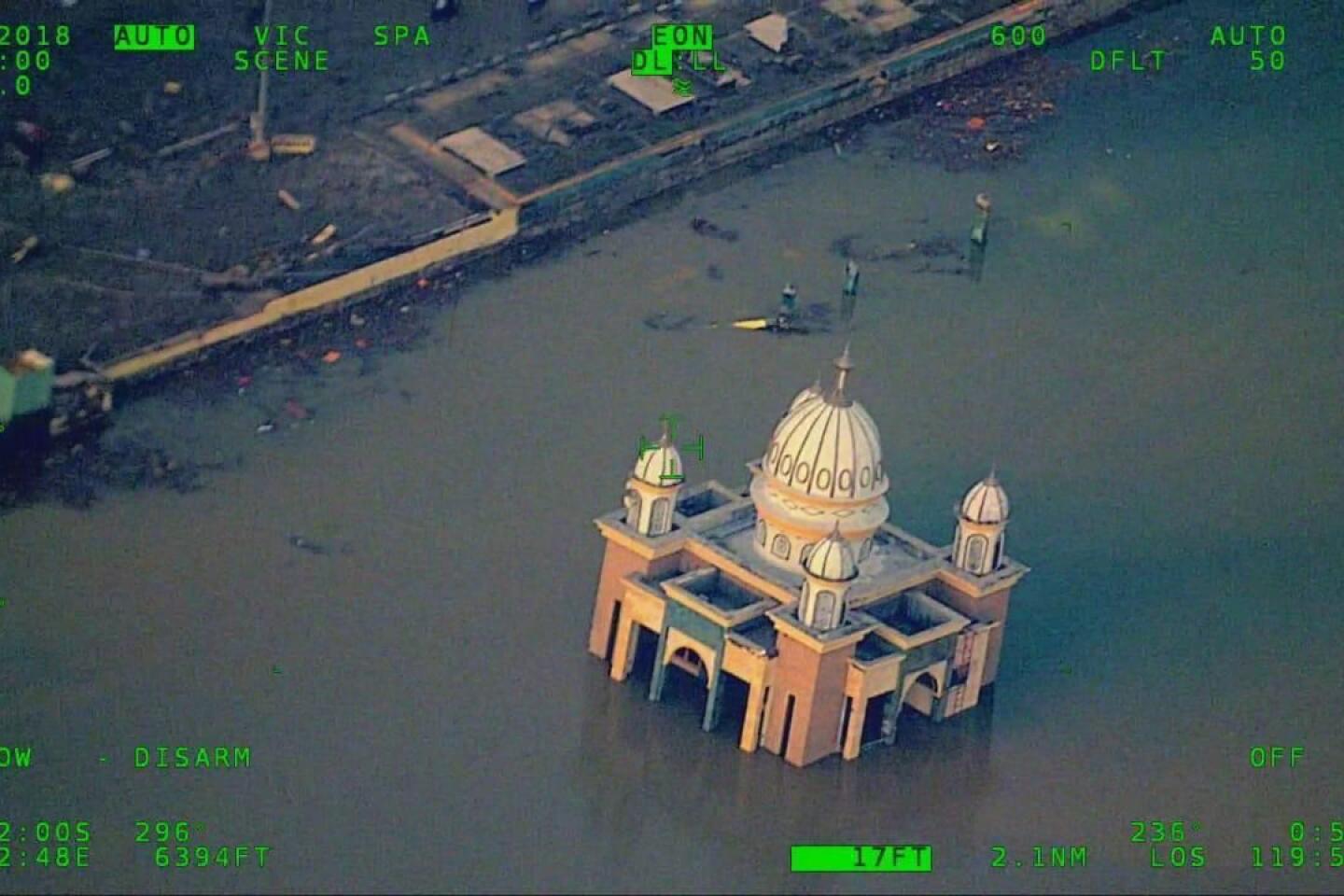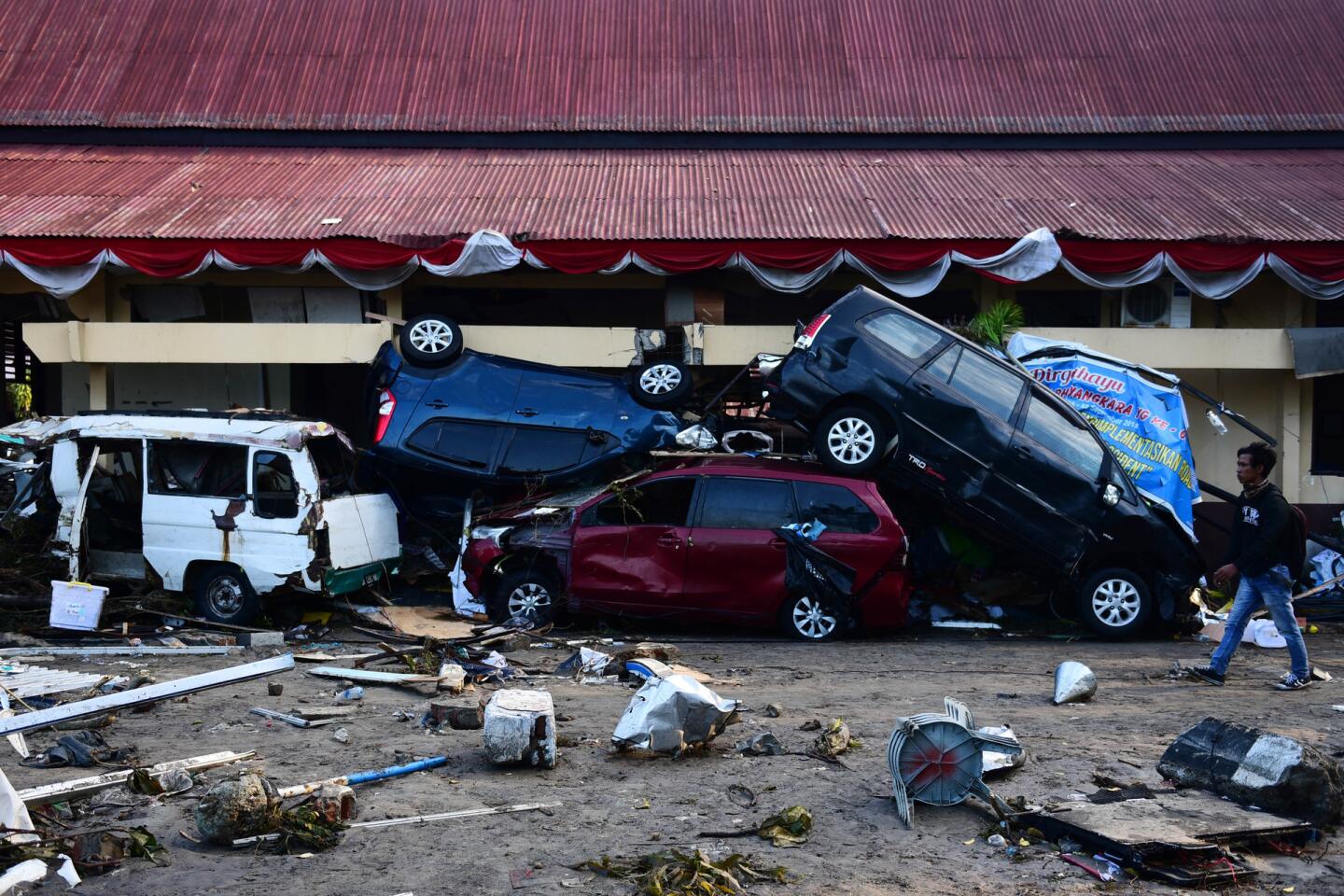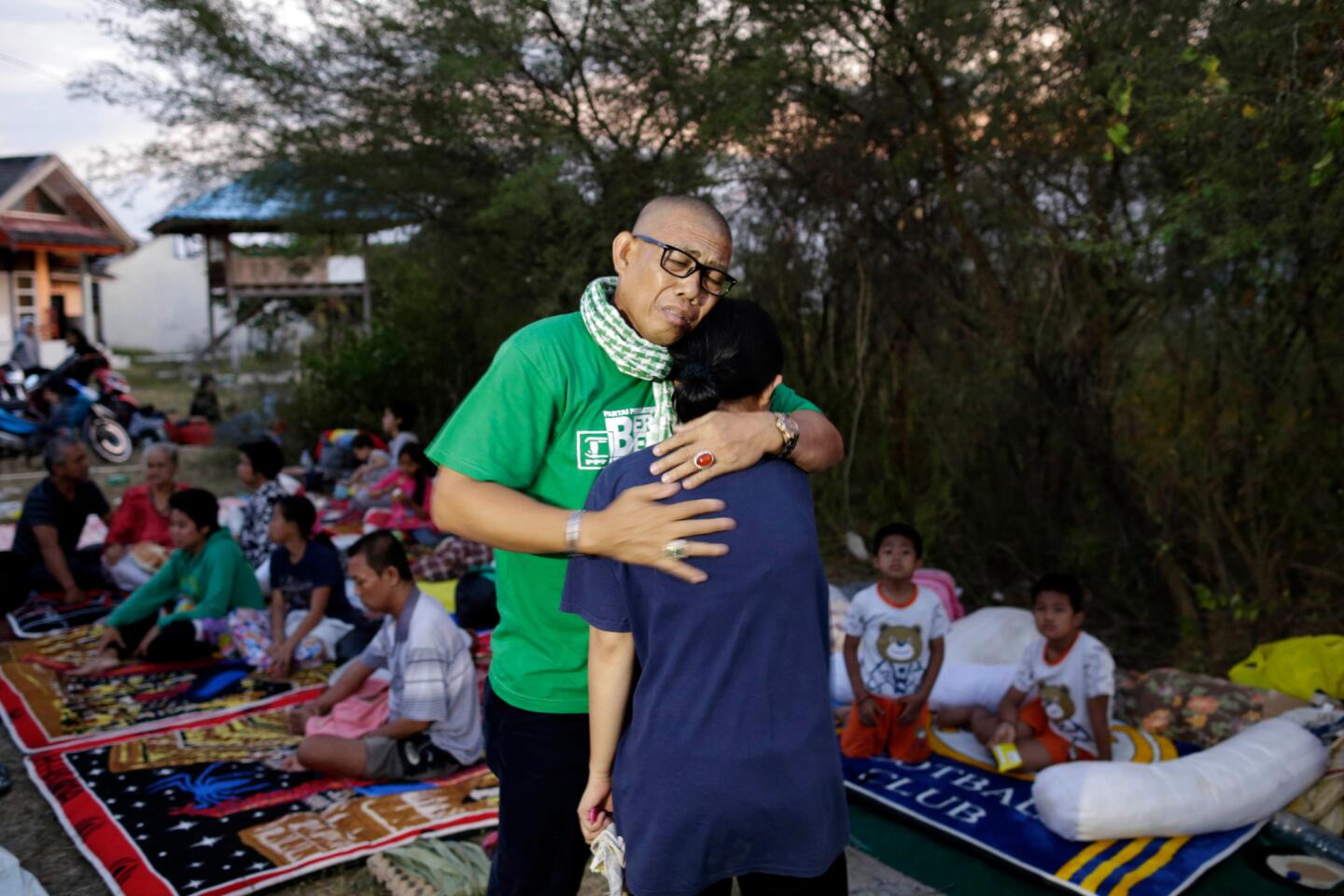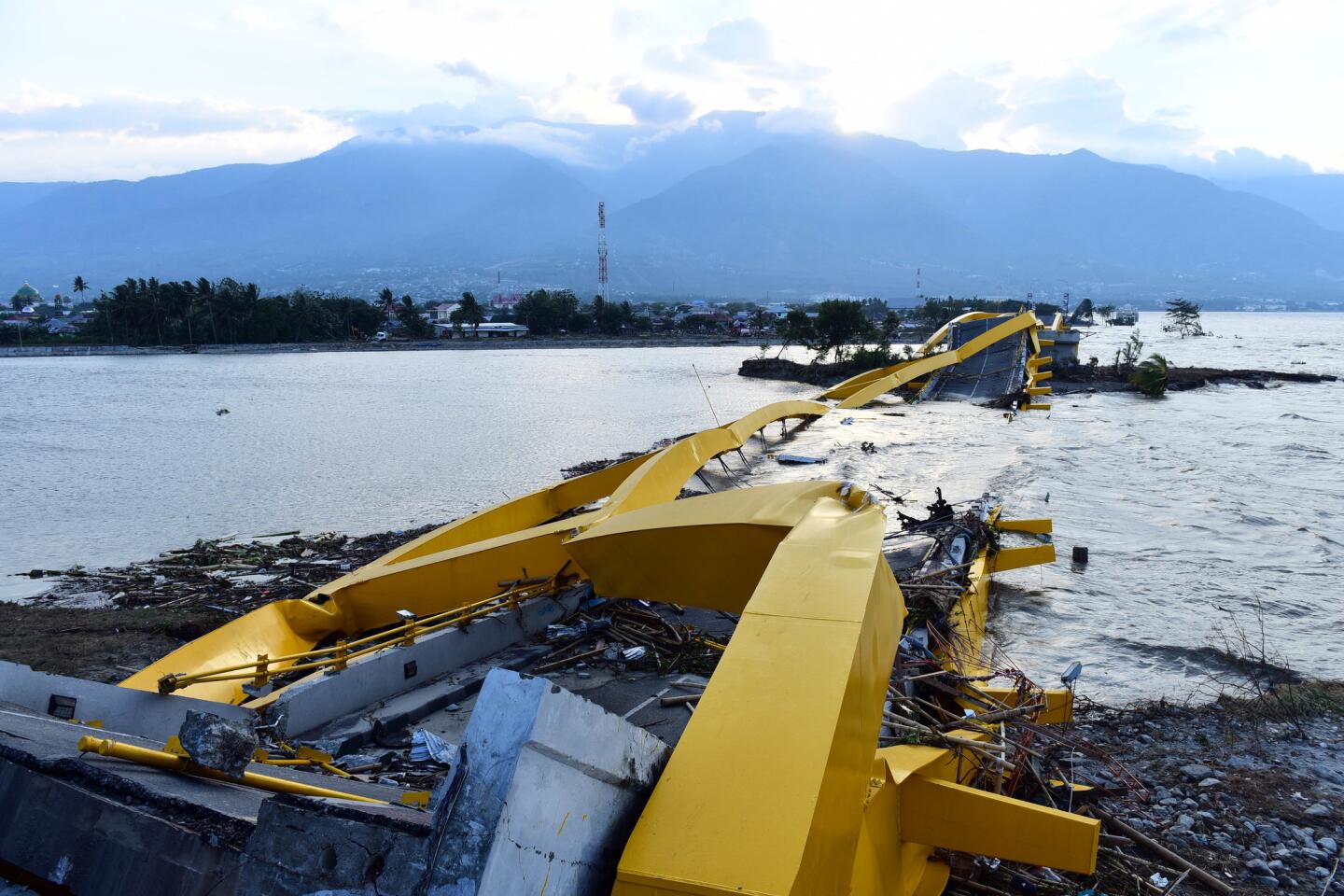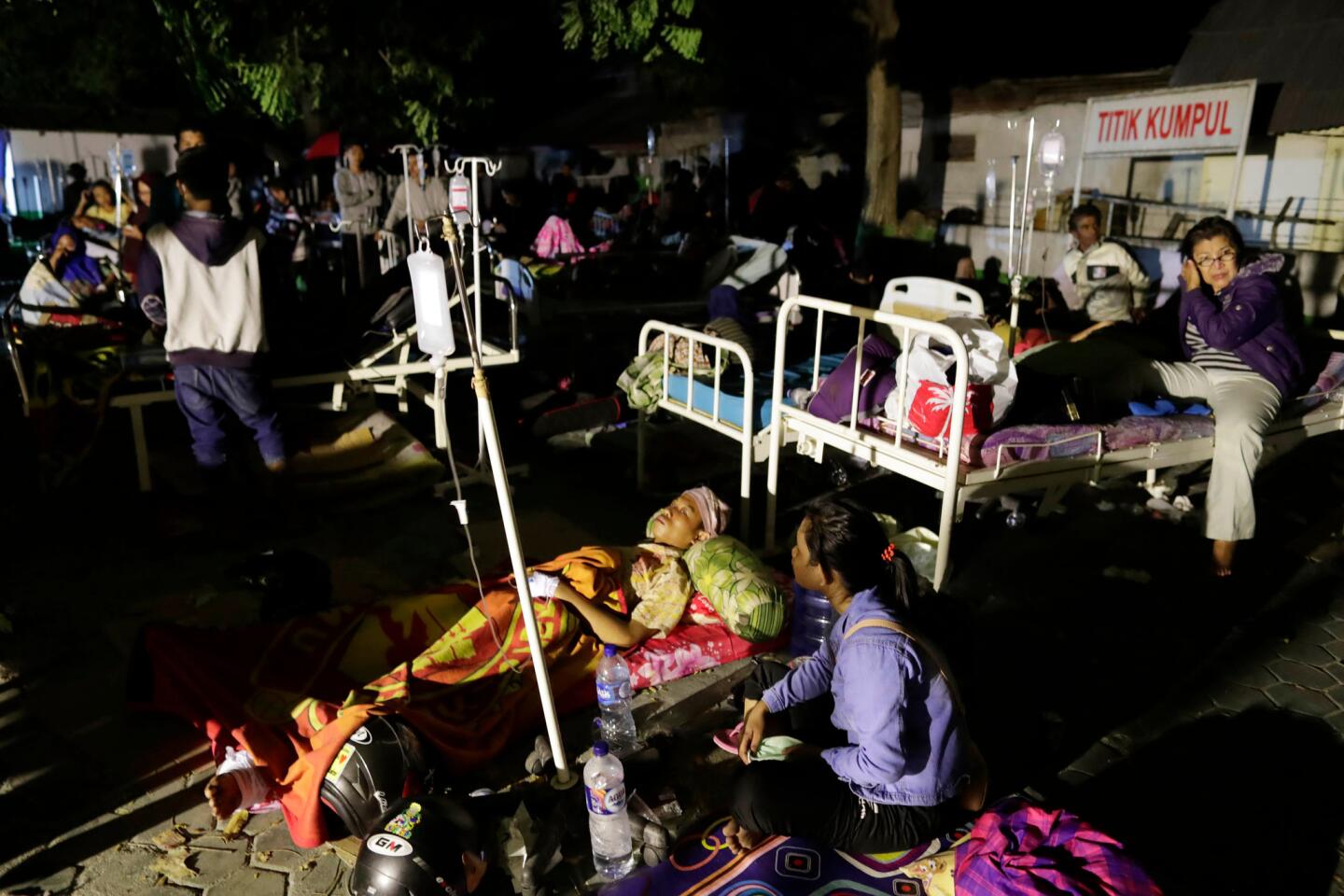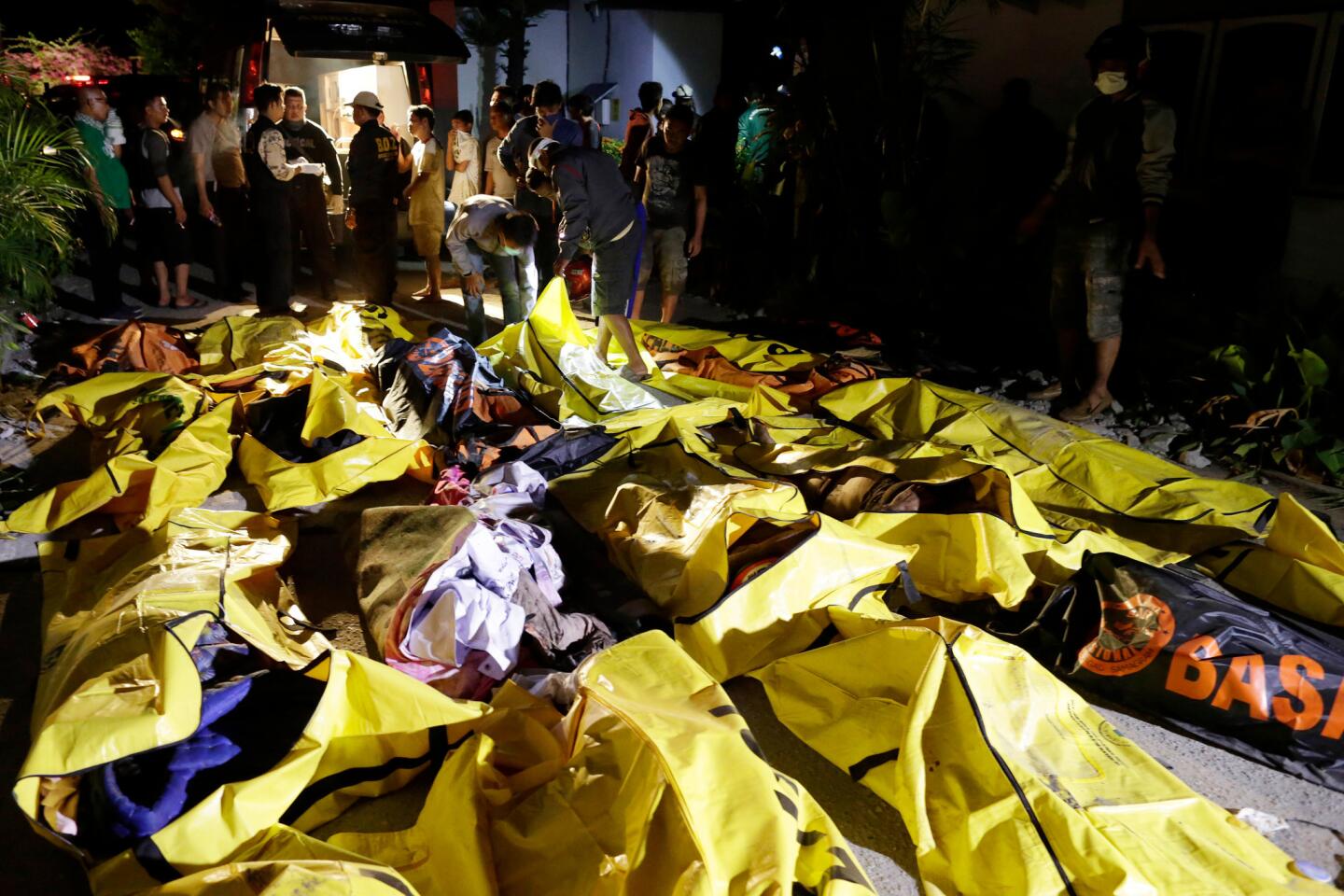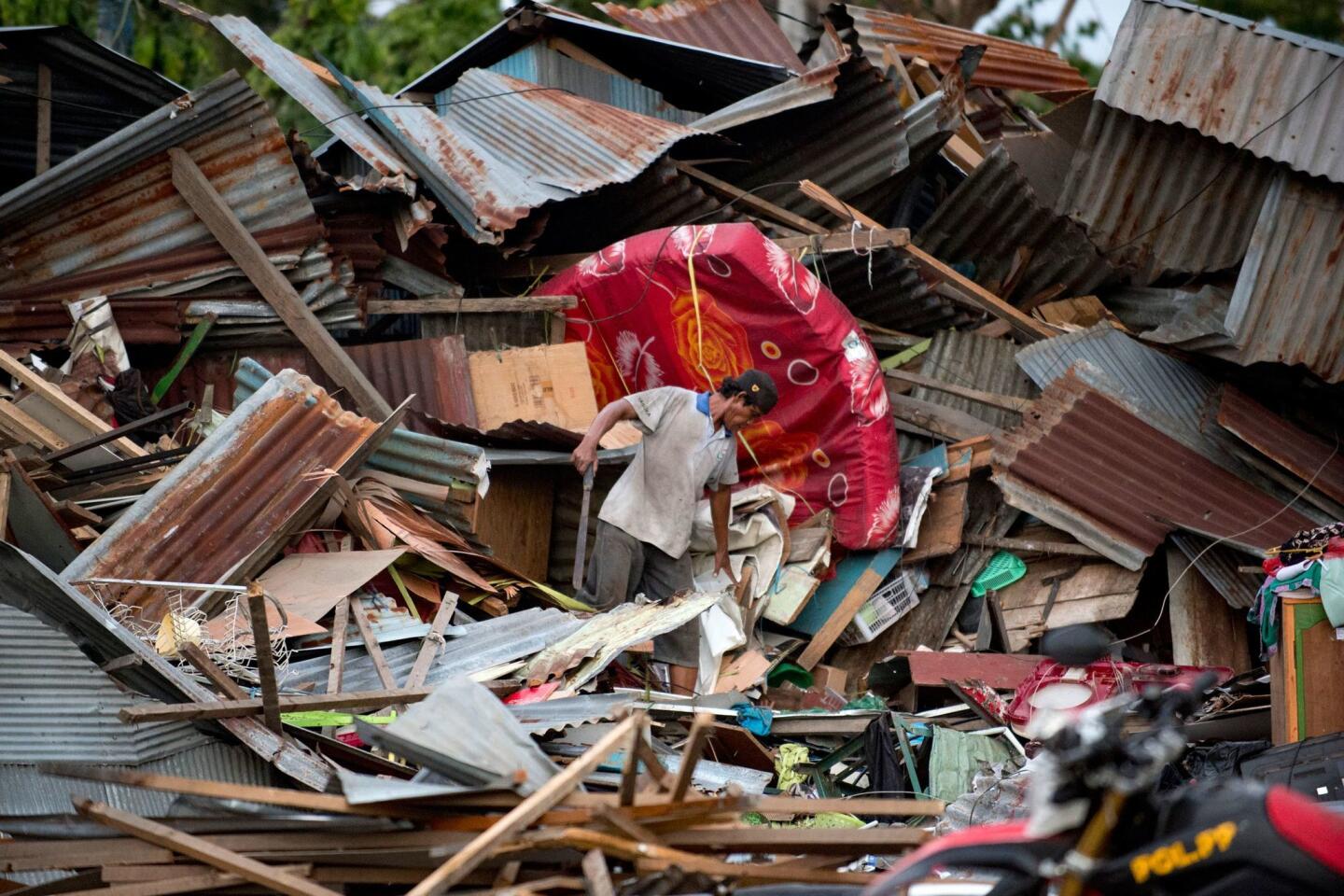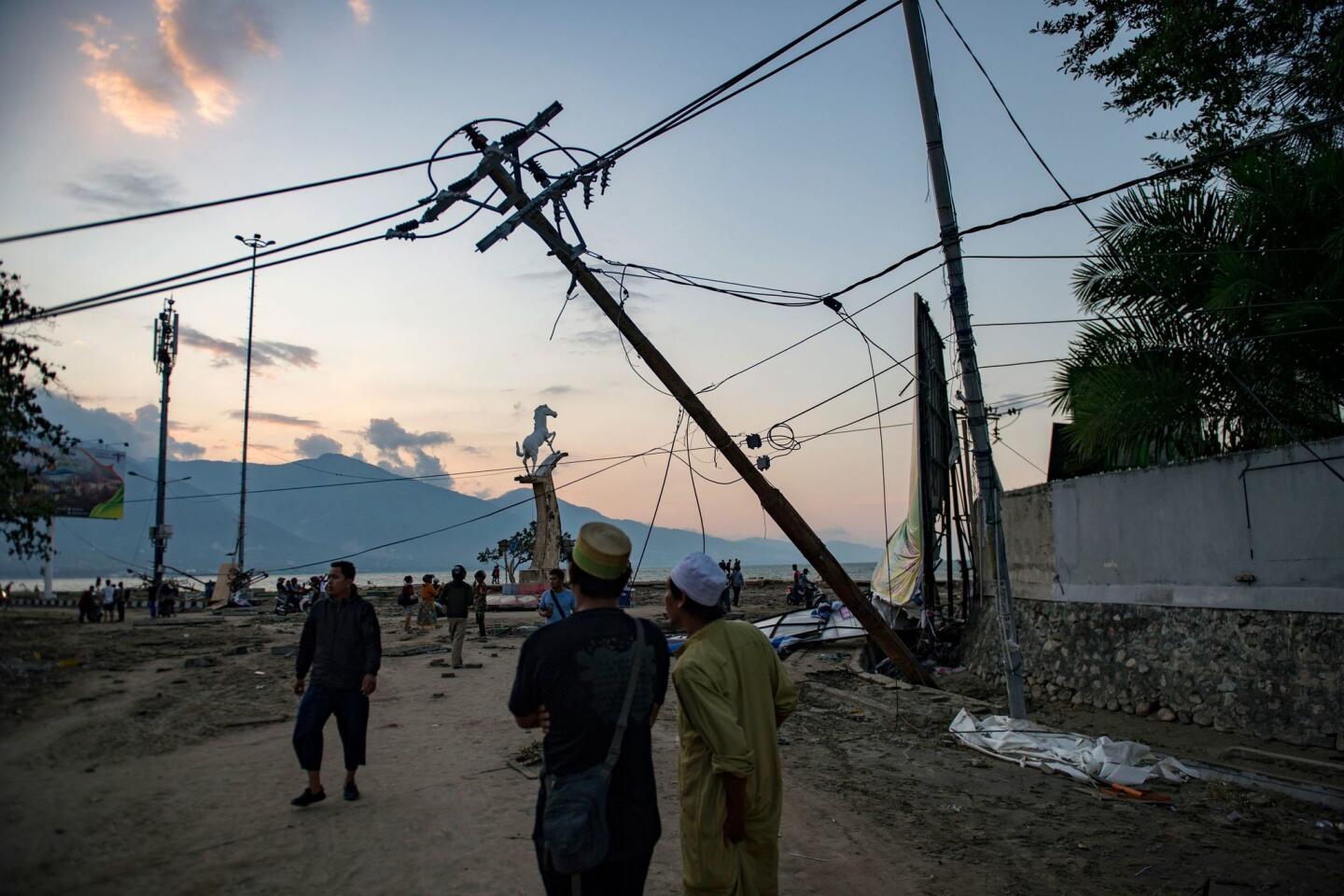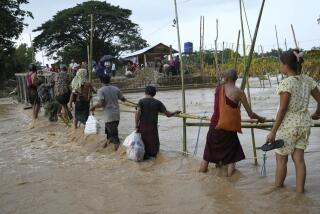Indonesia’s death toll headed well past 1,200, with several coastal towns still to be heard from
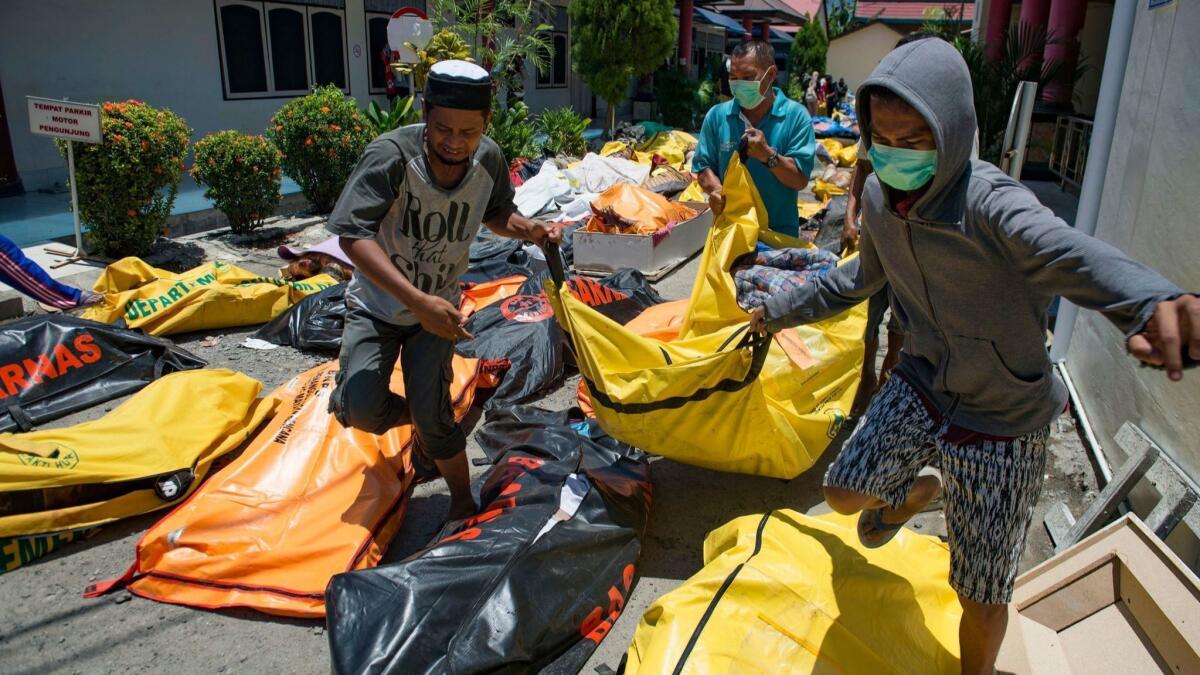
- Share via
Reporting from Jakarta, Indonesia — Rescuers dug through debris with their bare hands and anxious family members struggled to contact loved ones who remained unaccounted for Monday as the death toll from an earthquake and tsunami in eastern Indonesia appeared to be headed well past 1,200.
A string of towns along the western coast of the island of Sulawesi remained cut off by washed-out roads and downed communication lines, leaving the extent of the damage and loss of life there unknown more than 48 hours after the magnitude 7.5 quake struck.
With much of the quake zone inaccessible, the relief effort has focused on Palu, a town of 380,000, where crumpled buildings and bridges were surrounded by bodies, some covered by blankets, others with their clothes ripped apart by the force of a tsunami that measured as high as 20 feet.
In Palu alone, the death toll was at least 1,193, according to volunteers who compiled figures from local hospitals.
The latest official nationwide total was 832, but that was Sunday and nearly all were in Palu. Indonesia’s national disaster agency warned that the count could reach far higher once relief workers reached major towns such as Donggala, which has a population of around 300,000 and is normally a half-hour drive north of Palu.
“The death toll will increase but I cannot say [by] how much,” Sutopo Nugroho, the disaster agency spokesman, told The Times in Jakarta.
The government was expected to release a new total Monday afternoon.
The disaster was already the deadliest in more than a decade in Indonesia, a vast archipelago nation of nearly 300 million people spread across 17,000 islands that straddle an earthquake-prone Pacific region known as the Ring of Fire.
An area of intense tectonic activity and many active volcanoes, it has seen several devastating earthquakes in recent years — the deadliest in 2004, when a magnitude 9.1 temblor unleashed a tsunami across the Indian Ocean that killed 230,000 people, most of them in Indonesia.
The epicenter of Friday’s quake was the province of West Sulawesi, with a population of about 1.2 million people, many living in fishing towns along the coast that were hit by the tsunami.
With “catastrophic damage” in many areas, relief agencies were bracing for a large loss of life once teams could assess the effects in Donggala and other towns, said Tom Howells, program implementation director for Save the Children’s Jakarta office.
“Aid agencies and local authorities are struggling to reach several communities around Donggala…. We hold grave fears for many of the towns in this area,” Howells said.
Indonesian news media said dozens of people were trapped beneath toppled hotels and malls in Palu, an echo of scenes on the island of Lombok in August, when a series of earthquakes killed more than 460 people.
An Associated Press reporter in Palu said that rescue workers were focusing on an eight-story hotel where on Saturday voices were heard calling for help from under the rubble. Officials estimated about 50 people were inside the hotel, but the cries for help were no longer heard by Sunday afternoon, the news agency reported.
Aerial images showed a landmark mosque inundated with water, houses that had tumbled down muddy hillsides and a ship swept ashore in Palu by the force of the waves.
Hundreds of people had been attending a festival on the beach in Palu when the quake struck. Many of them were still unaccounted for, and anguished Indonesians were struggling to make contact with family members over the phone.
Anisah Firdaus Bandu’s mother called her in tears from Palu the evening of the quake. She hasn’t heard from her since.
“My mother cried a lot, she tried to pick up my father at his office,” said Anisah, a civil servant in Jakarta, the capital.
“I really tried hard to reach them till now but I can’t.”
With roads into Palu blocked by landslides and the town’s airport damaged, getting teams of relief workers from elsewhere in Indonesia to the disaster zone was proving difficult, delaying timely assistance to survivors and the arrival of heavy equipment that could save the people trapped in downed buildings.
Officials said they would deliver some assistance via Makassar, the biggest city on Sulawesi, an island roughly the size of Florida with a population of about 18 million. Makassar lies at the southern end of the island, a 12-hour drive from Palu.
Hundreds of bodies stuffed into yellow, black and blue body bags were piled in a hospital courtyard as relatives began the grim task of identifying loved ones.
To avoid the spread of diseases such as cholera and typhoid, disaster management officials said they would begin mass burials on Sunday, taking fingerprints and other information so that the dead could be identified at a later date.
Dozens of strong aftershocks have struck Palu, where many fearful residents were sleeping in the streets and reluctant to reenter their homes, said Rafiq Anshori, head of the Indonesian Red Cross’ disaster preparedness division. He spoke by phone from Palu, where some communications had been restored by Sunday evening.
“Many road[s], houses, other facilities are broken,” he said. “People are finding it difficult to get food, water, fuel.”
Potable water and temporary shelters were among the urgent needs in Palu, said Mario de Oliveira, emergency management director for the Adventist Development and Relief Agency, which was sending teams to the affected areas.
“Many families are in urgent need of help. They have lost everything, and they are struggling,” De Oliveira said. “The most urgent needs at this time include baby and children’s foods, emergency tents and tarpaulins, blankets, clean and potable water, medicines, among other priorities.”
Imade Boby, a 35-year-old Jakarta resident, said Sunday afternoon that he hadn’t been able to reach his parents or other family members in Palu since the quake. By late evening, however, he managed to get through on the phone.
“Finally I found my family in Palu,” he said, “and thank God they are in good condition.”
Special correspondent Roughneen reported from Jakarta and Times staff writer Bengali from Mumbai, India.
Follow @SBengali on Twitter for more news from South Asia
UPDATES:
7:50 p.m.: This article was updated with a new death toll.
12:25 p.m.: This article was updated with more details of the devastation and background on earthquakes and tsunamis in Indonesia.
10:45 a.m.: This article was updated with news from Imade Boby’s family.
7:15 a.m.: This article was updated throughout with staff reporting.
2:50 a.m.: This article was updated with mass burial and the president’s visit.
This article was first published at 12:15 a.m.
More to Read
Sign up for Essential California
The most important California stories and recommendations in your inbox every morning.
You may occasionally receive promotional content from the Los Angeles Times.
